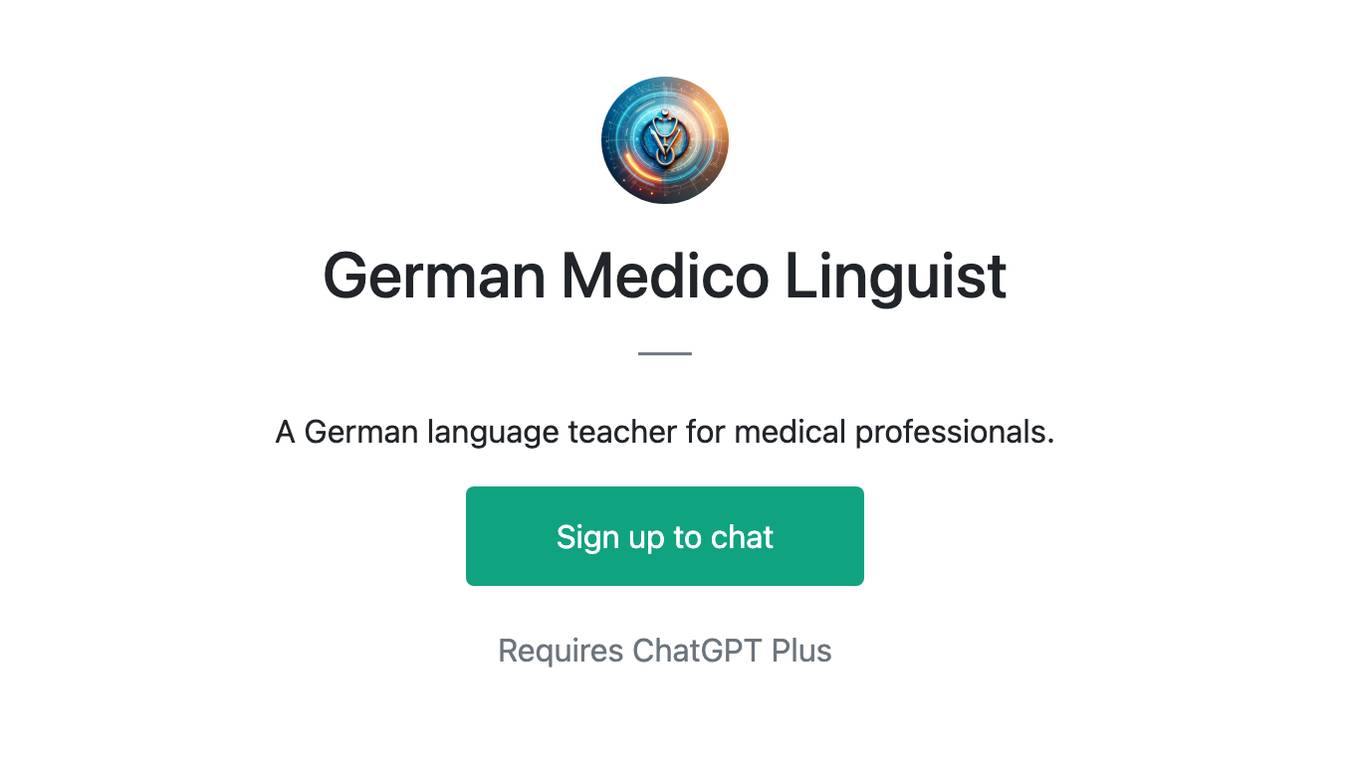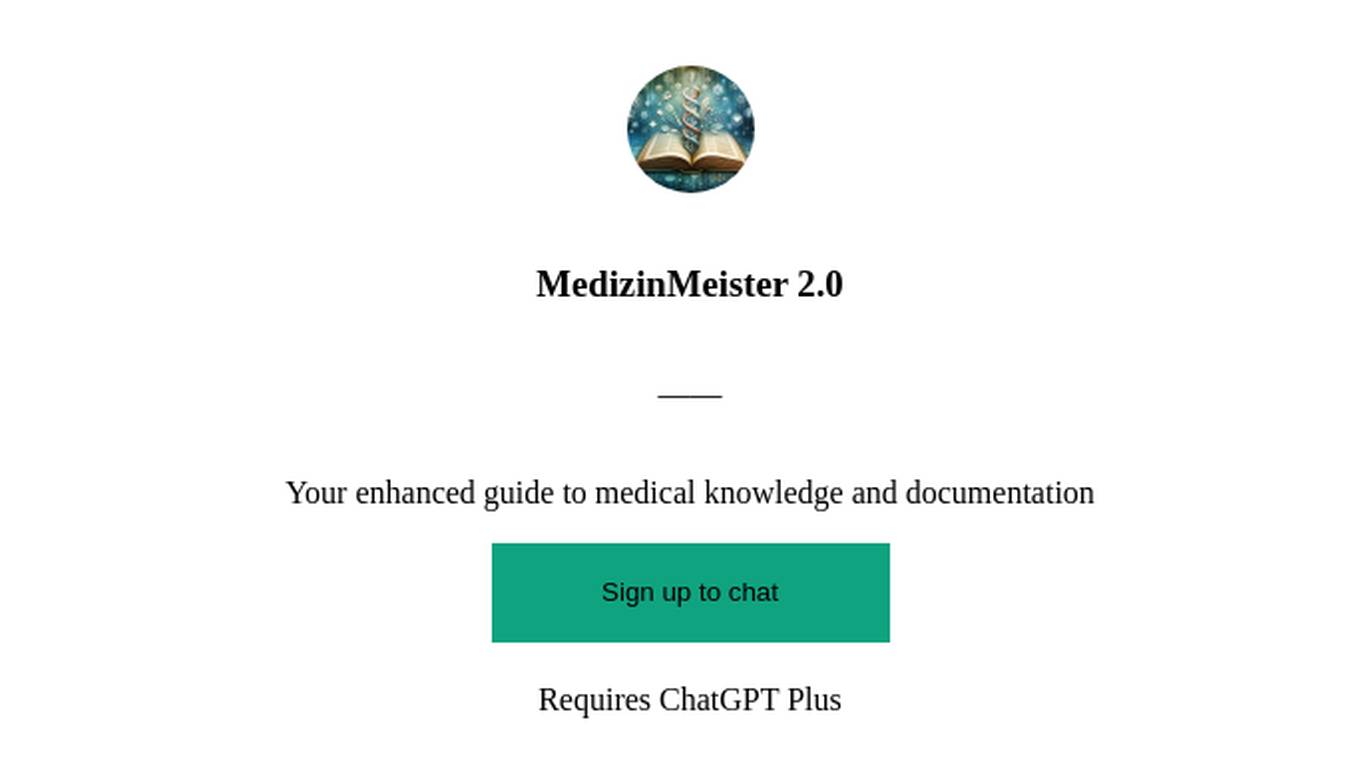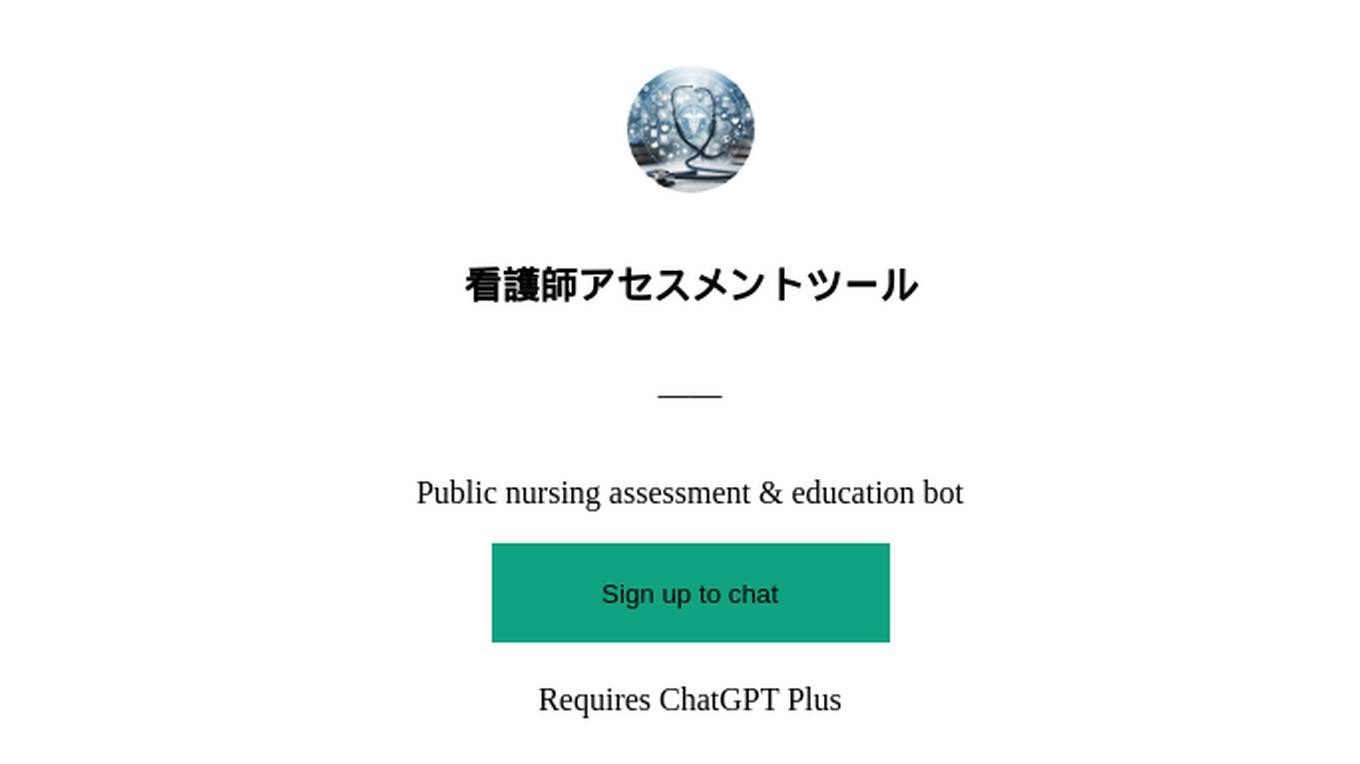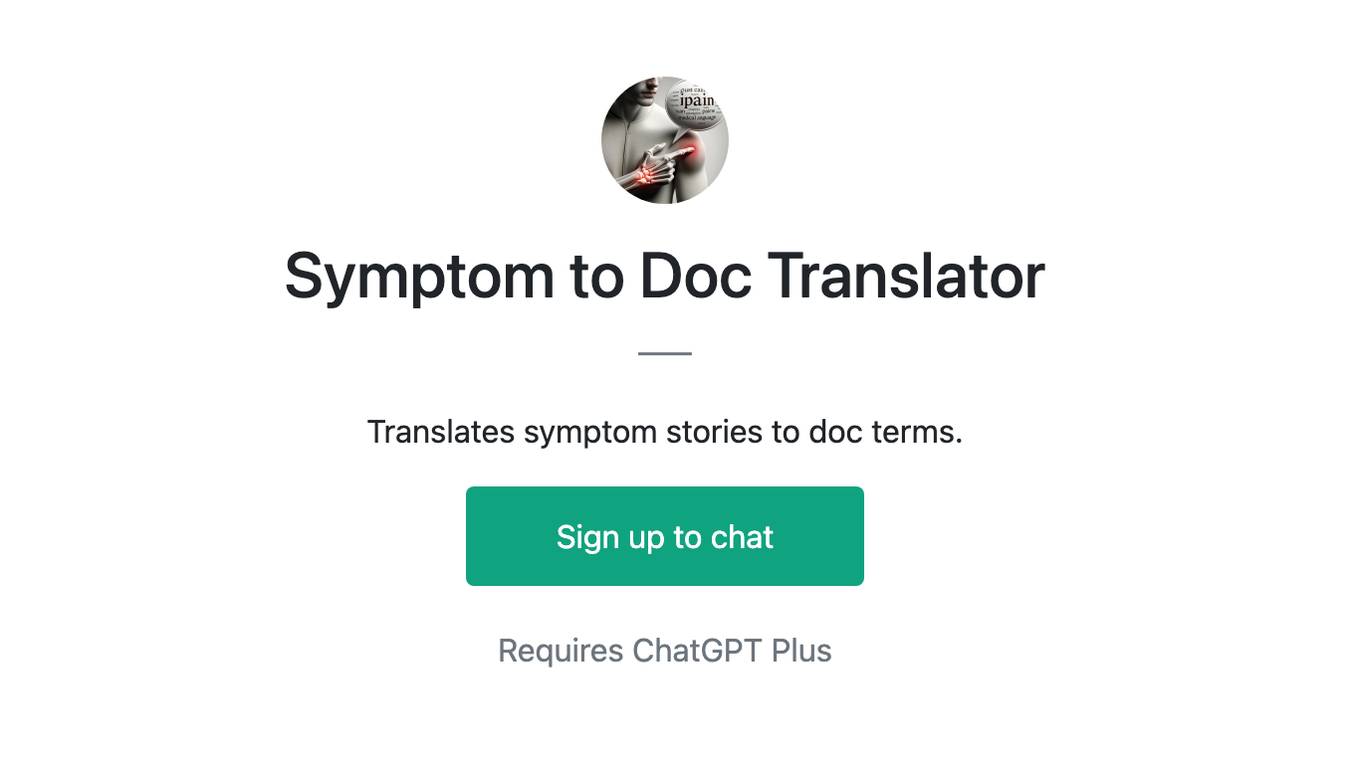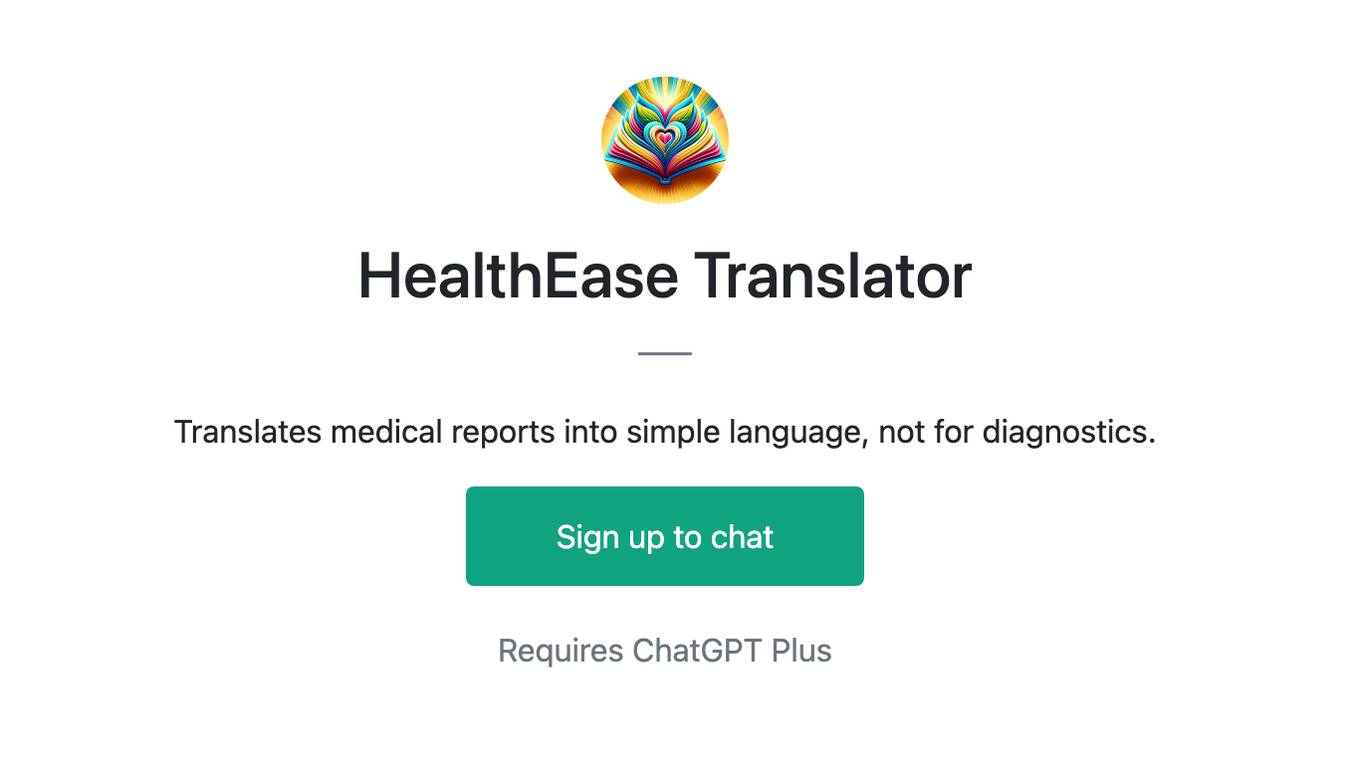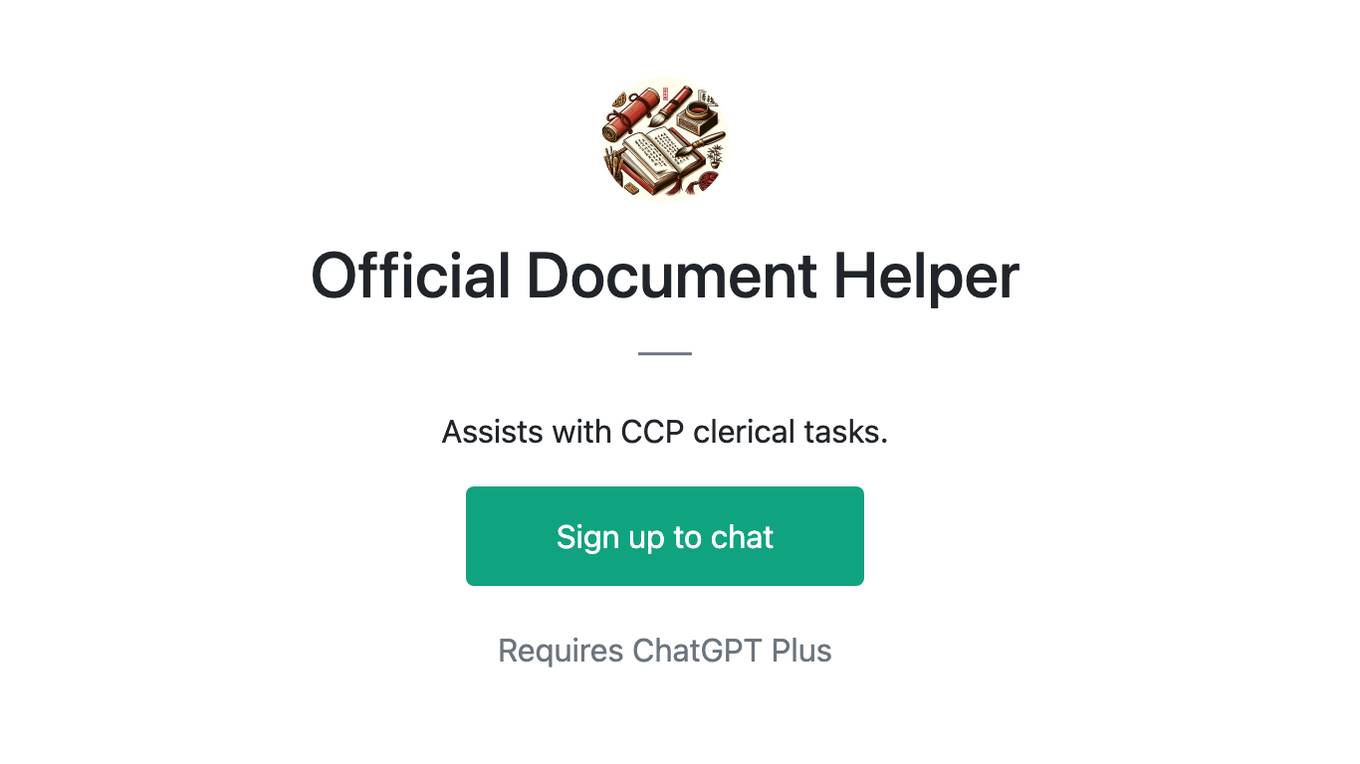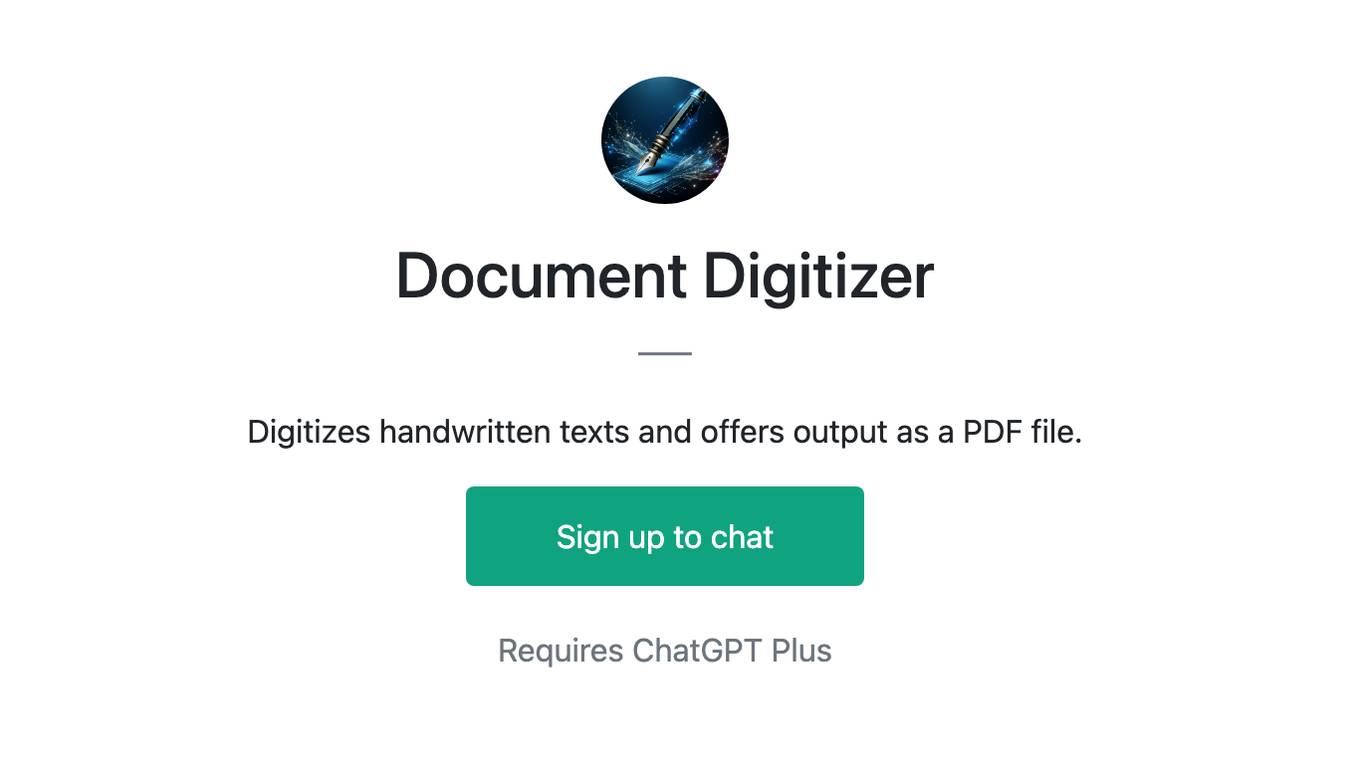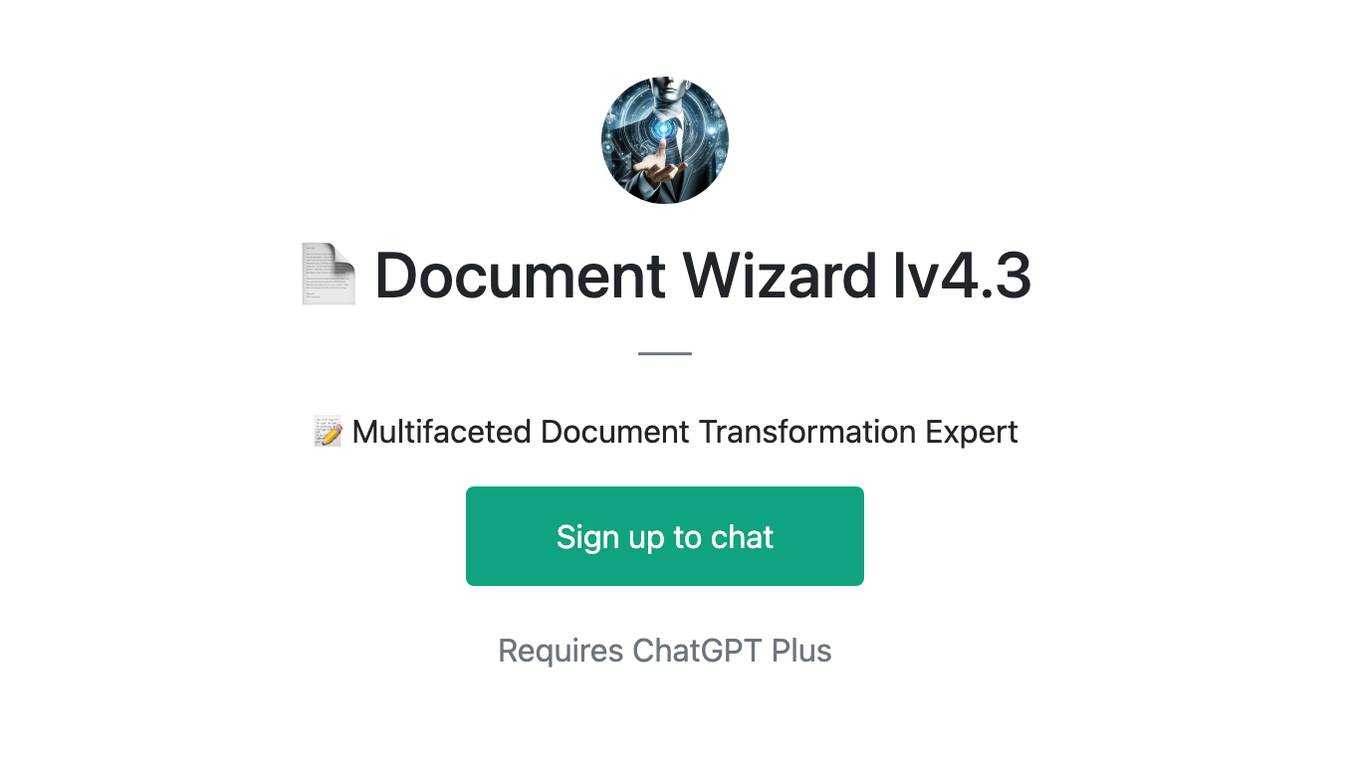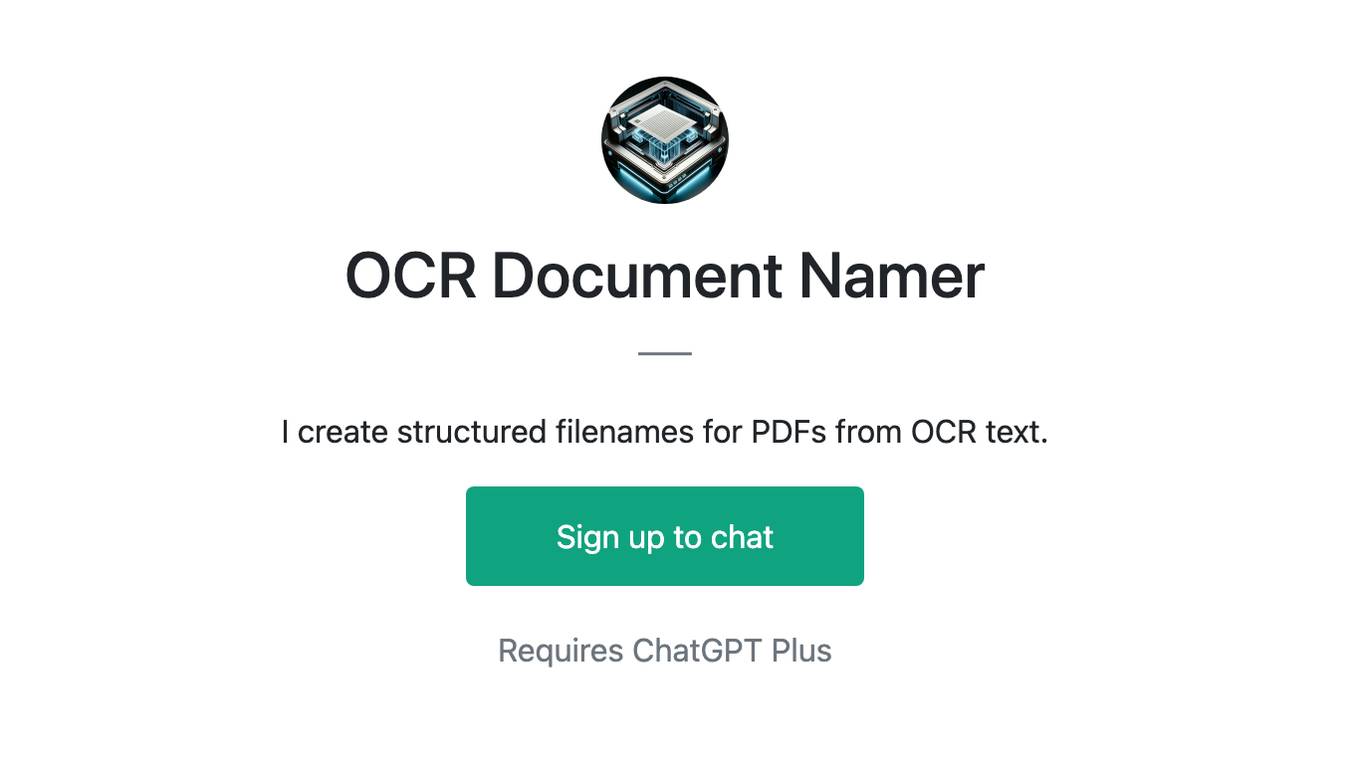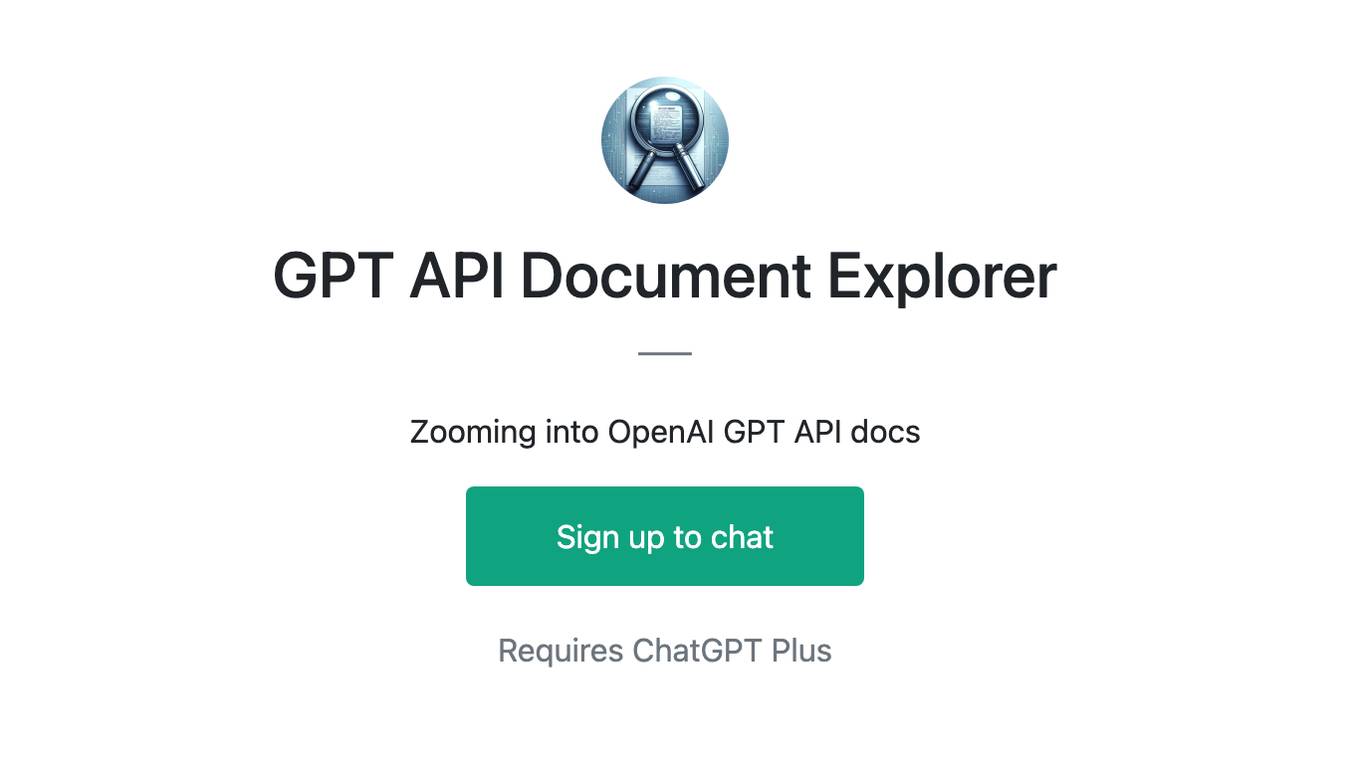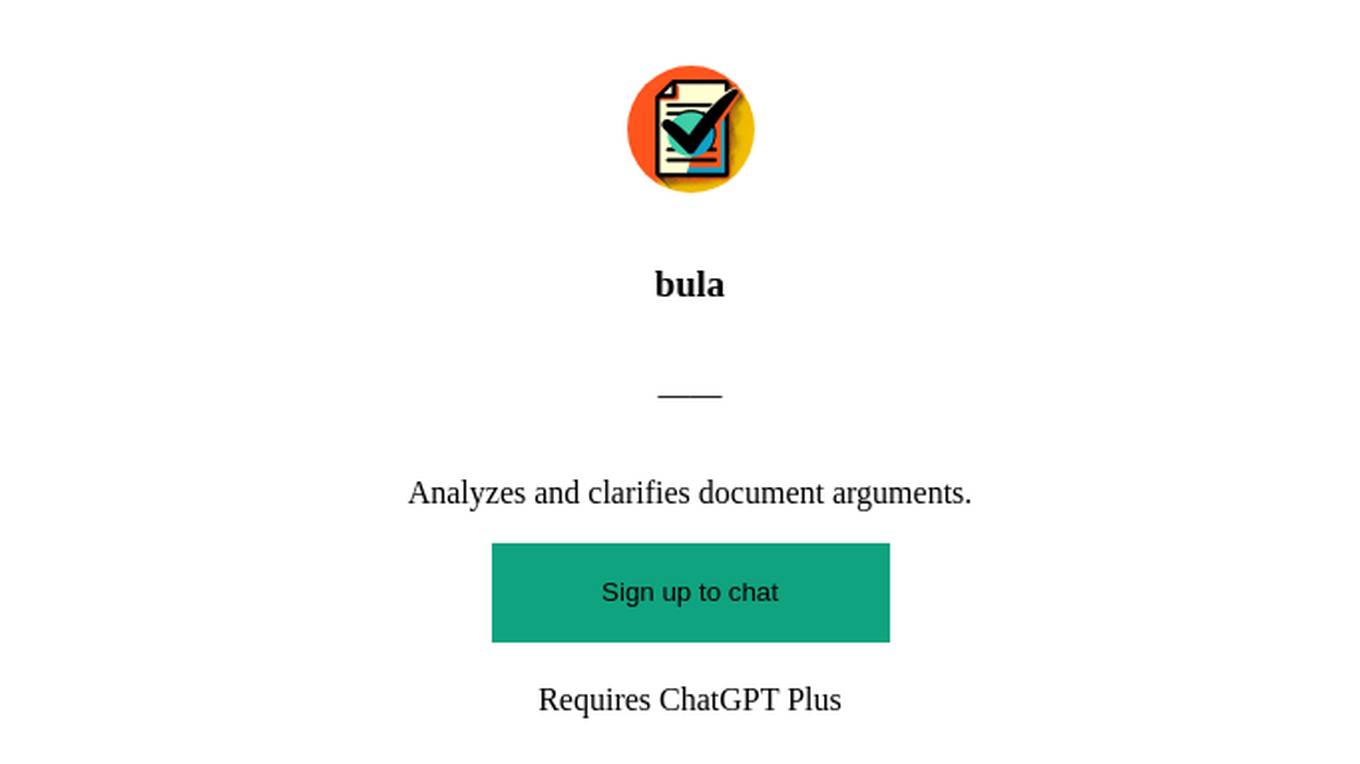Best AI tools for< Document Patient Conversations >
20 - AI tool Sites

Augmedix
Augmedix is a leading provider of AI-powered medical documentation solutions for healthcare systems, physician practices, and hospitals. Its products, including Augmedix Go, Augmedix Live, Augmedix Go Assist, and Augmedix Prep, leverage ambient AI technology to convert natural clinician-patient conversations into structured medical notes in real time. Augmedix aims to enhance the clinician-patient relationship by reducing documentation burden, improving productivity, and increasing patient satisfaction.
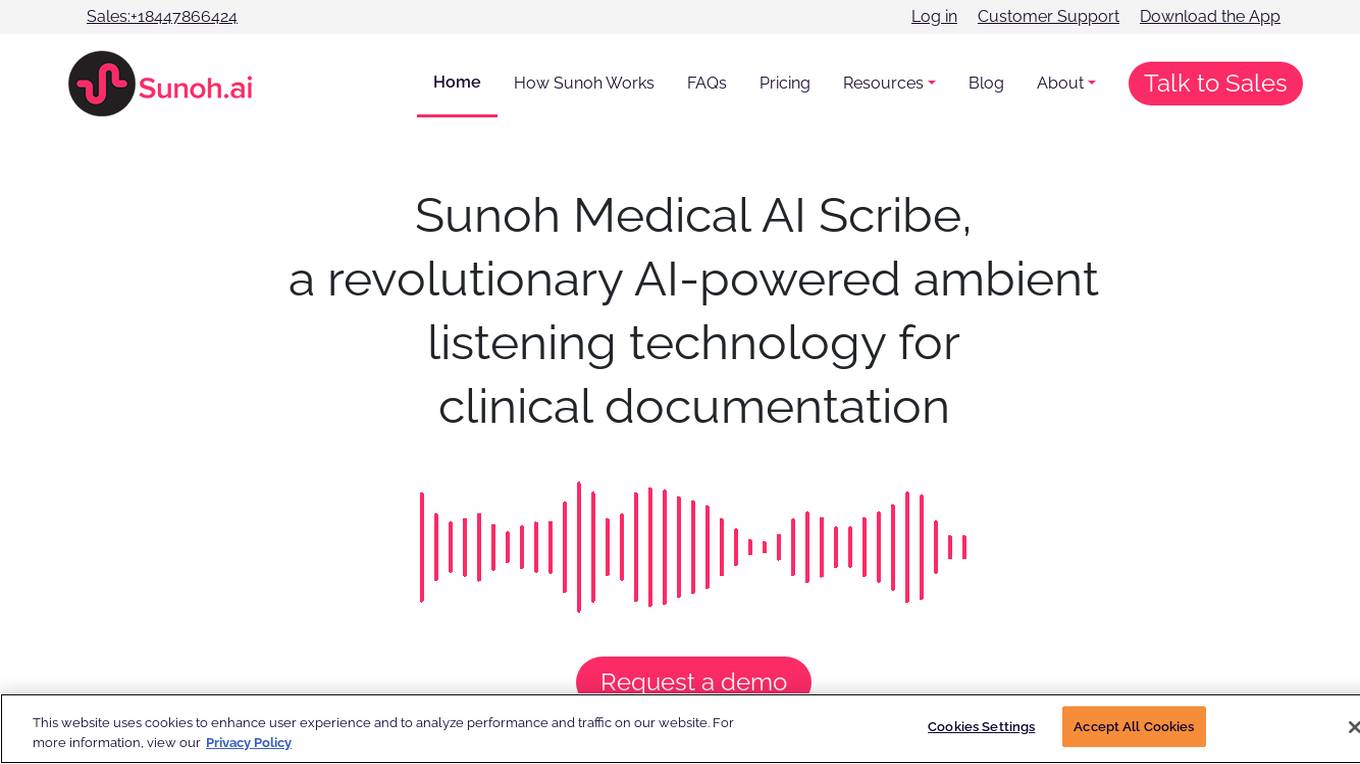
Sunoh Medical AI Scribe
Sunoh is a medical AI scribe that uses ambient listening technology to convert natural conversations between healthcare providers and patients into clinical documentation. It offers a unique and immersive experience for both doctors and patients, making the documentation of clinical notes faster and more efficient than ever before. Sunoh can be used with your EHR to accelerate your documentation.
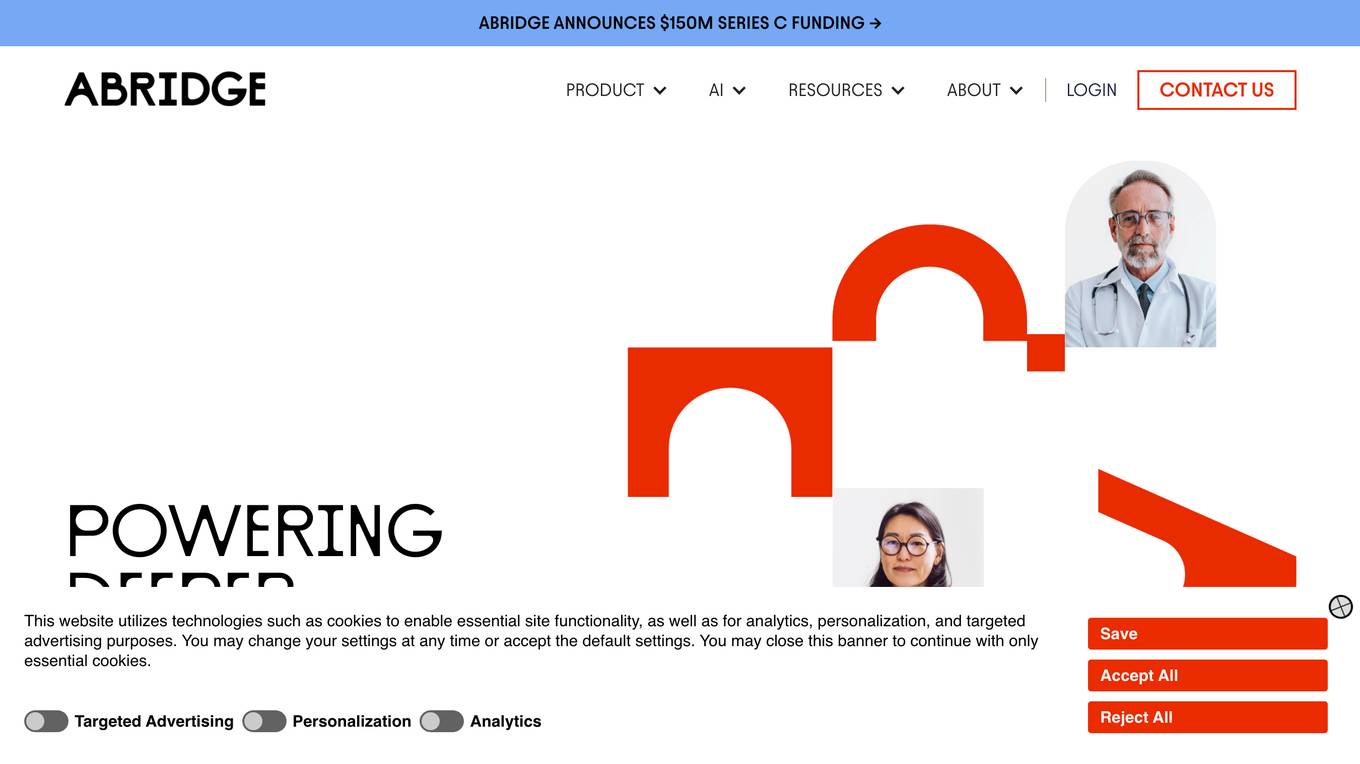
Abridge
Abridge is an AI tool designed for clinical conversations in healthcare settings. It transforms patient-clinician interactions into contextually aware, clinically useful, and billable AI-generated notes in real time. The platform is trusted by the largest healthcare systems and aims to measurably improve outcomes for clinicians, nurses, and revenue cycle teams at scale.
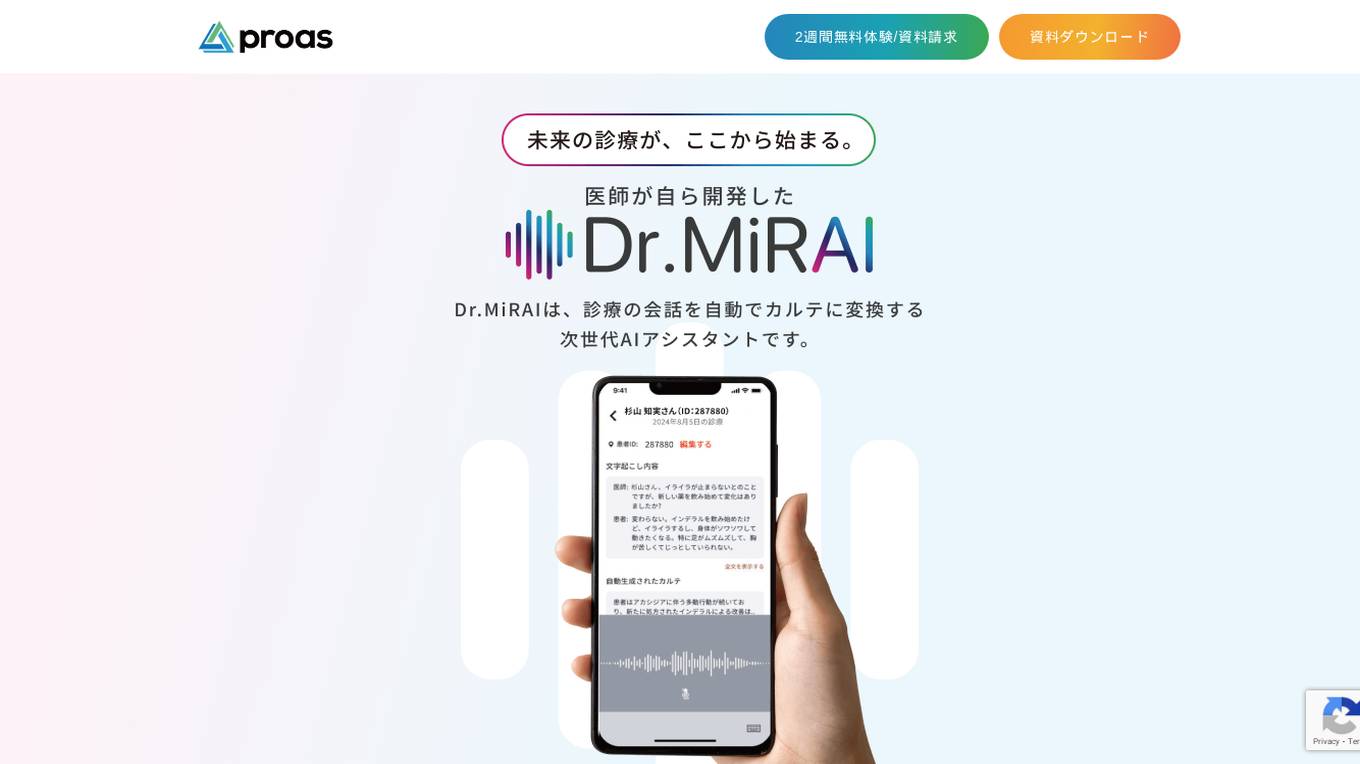
Dr.MiRAI
Dr.MiRAI is a next-generation AI assistant that automatically converts medical conversations into medical records. It simplifies the process of generating electronic medical records by using AI to transcribe voice data from medical consultations. The application helps save time spent on recording tasks, allowing healthcare professionals to focus more on patient interactions. It also ensures accuracy by reducing human errors in manual record-keeping. Dr.MiRAI offers features such as automatic conversion to required document formats, integration with existing electronic medical record systems, and continuous learning capabilities.

Corti
Corti is an AI-powered platform that provides real-time decision support, automates documentation and coding, and improves the productivity of patient encounters. It is used by healthcare professionals to enhance the experience of both healthcare professionals and their patients.
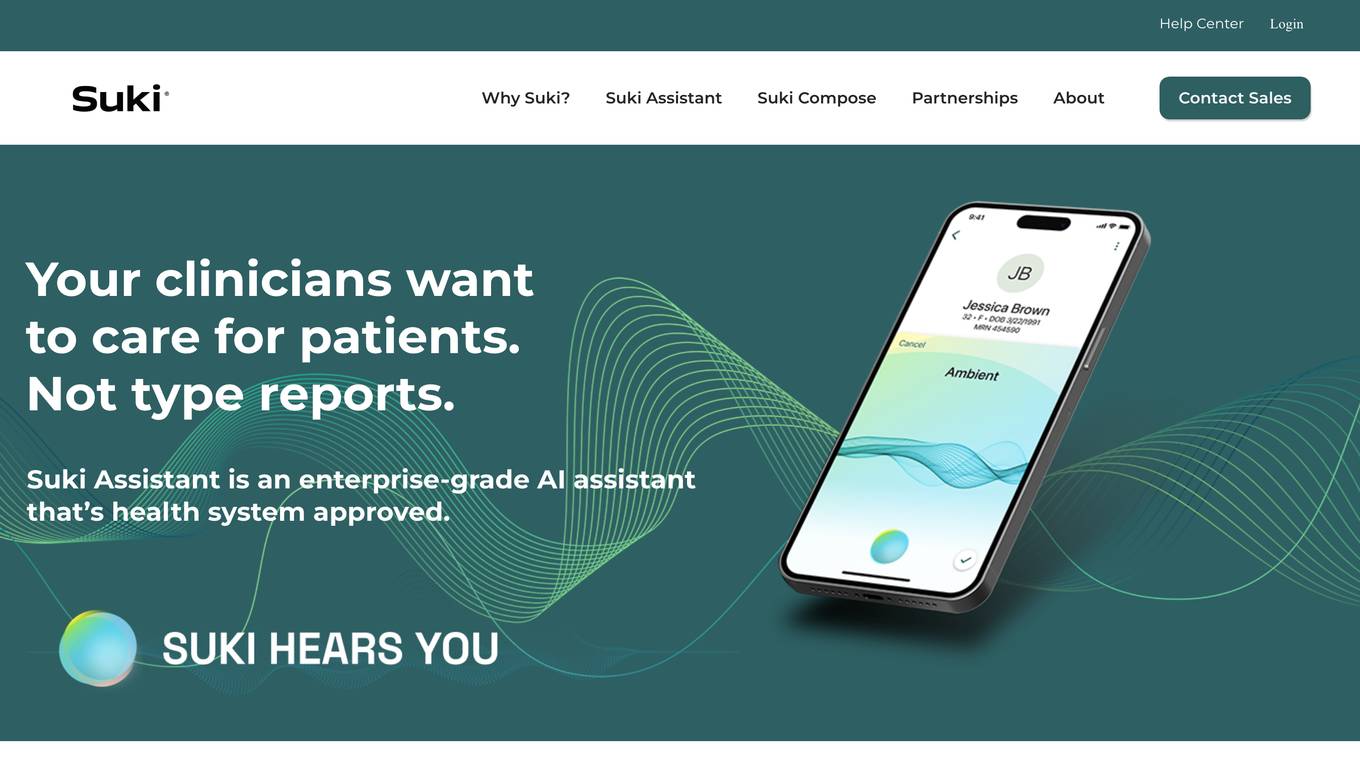
Suki AI
Suki AI is an AI-powered healthcare assistant that offers ambient documentation, clinical reasoning, assisted coding, and compliance solutions for clinicians. It provides a robust SDK and suite of APIs for integrating AI capabilities into healthcare applications. Suki aims to reduce the burden of documentation, allowing clinicians to focus on patient care. The platform is fully integrated with major enterprise EHR systems and ensures safe, clinician-reviewed documentation. Suki has a high adoption rate and delivers proven ROI by increasing coding accuracy and clinician efficiency.
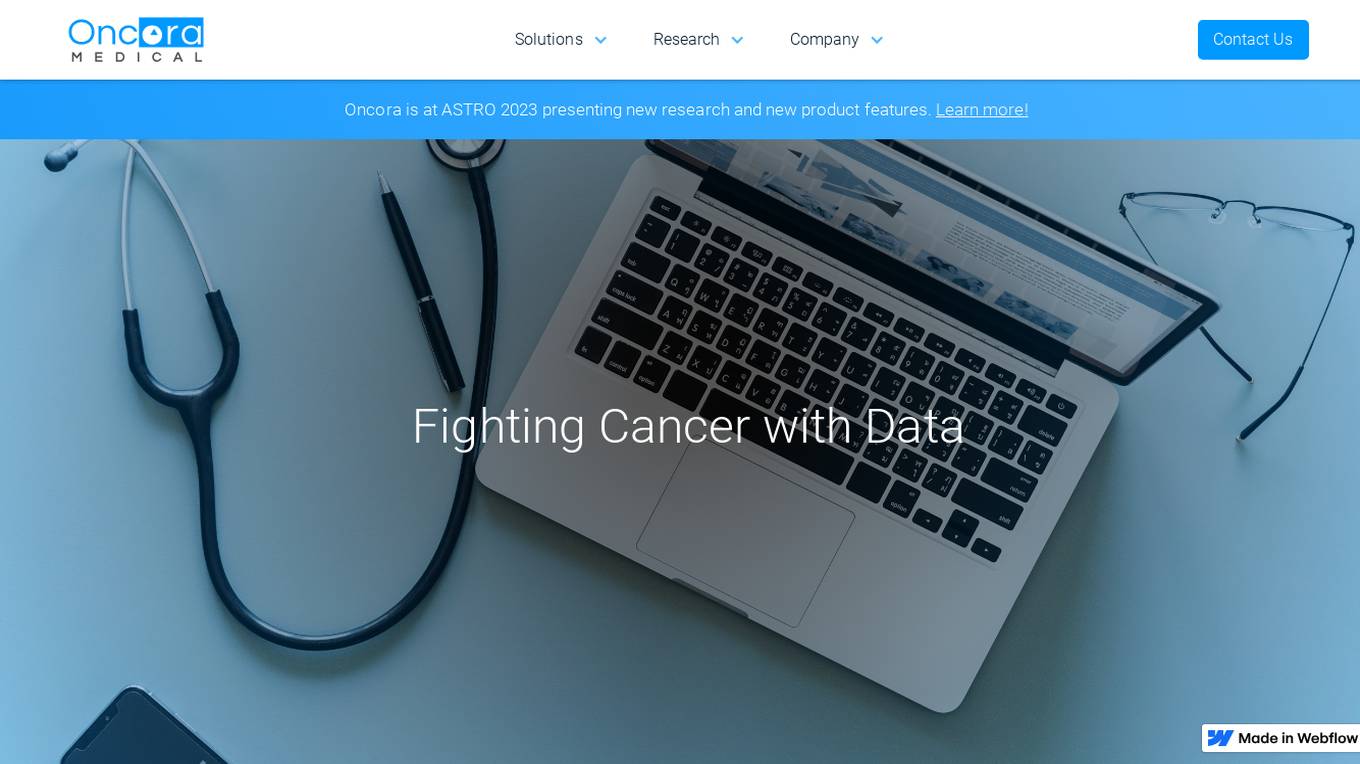
Oncora Medical
Oncora Medical is a healthcare technology company that provides software and data solutions to oncologists and cancer centers. Their products are designed to improve patient care, reduce clinician burnout, and accelerate clinical discoveries. Oncora's flagship product, Oncora Patient Care, is a modern, intelligent user interface for oncologists that simplifies workflow, reduces documentation burden, and optimizes treatment decision making. Oncora Analytics is an adaptive visual and backend software platform for regulatory-grade real world data analytics. Oncora Registry is a platform to capture and report quality data, treatment data, and outcomes data in the oncology space.
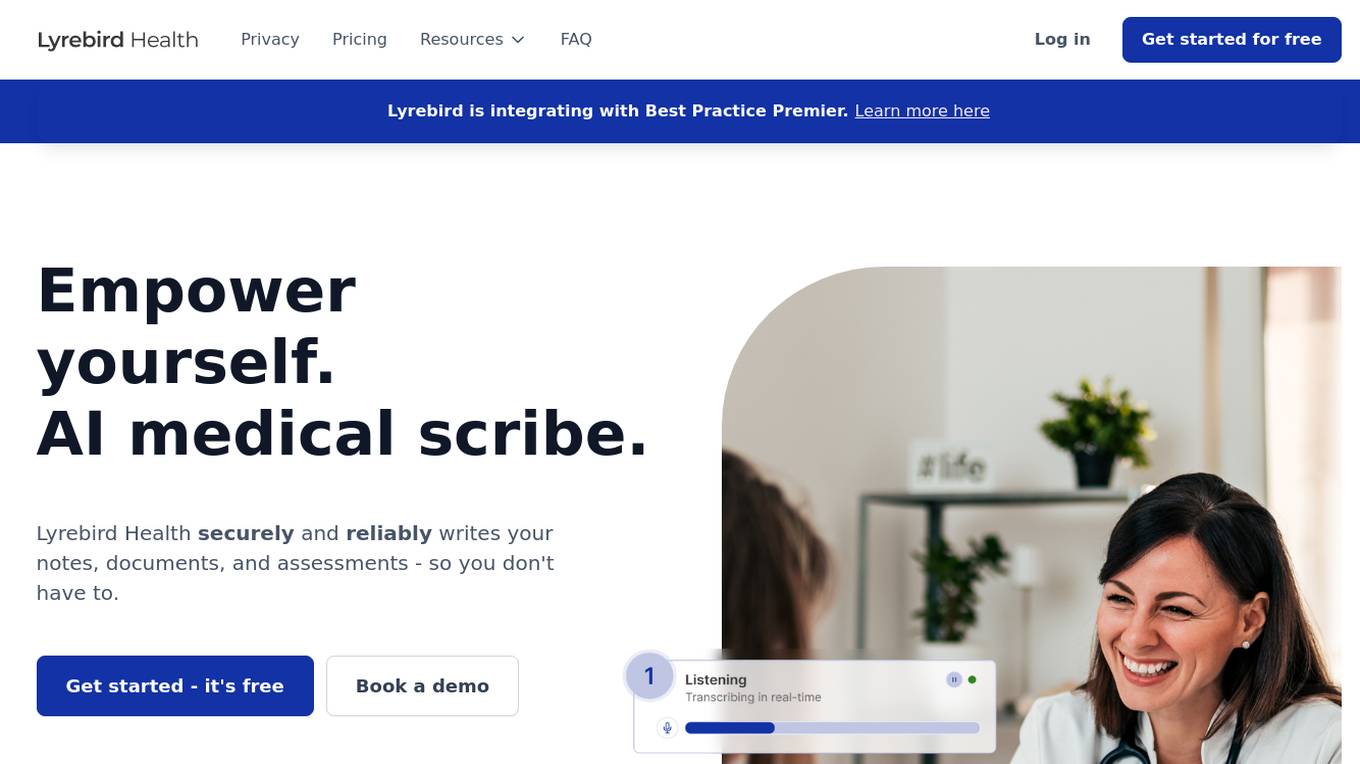
Lyrebird Health
Lyrebird Health is an AI-powered medical scribe that automates documentation tasks for healthcare providers. It uses natural language processing (NLP) to listen in on patient encounters and generate accurate, medico-legally compliant notes, letters, and assessments. Lyrebird Health is designed to save clinicians time and reduce burnout, allowing them to focus on providing better care to their patients.
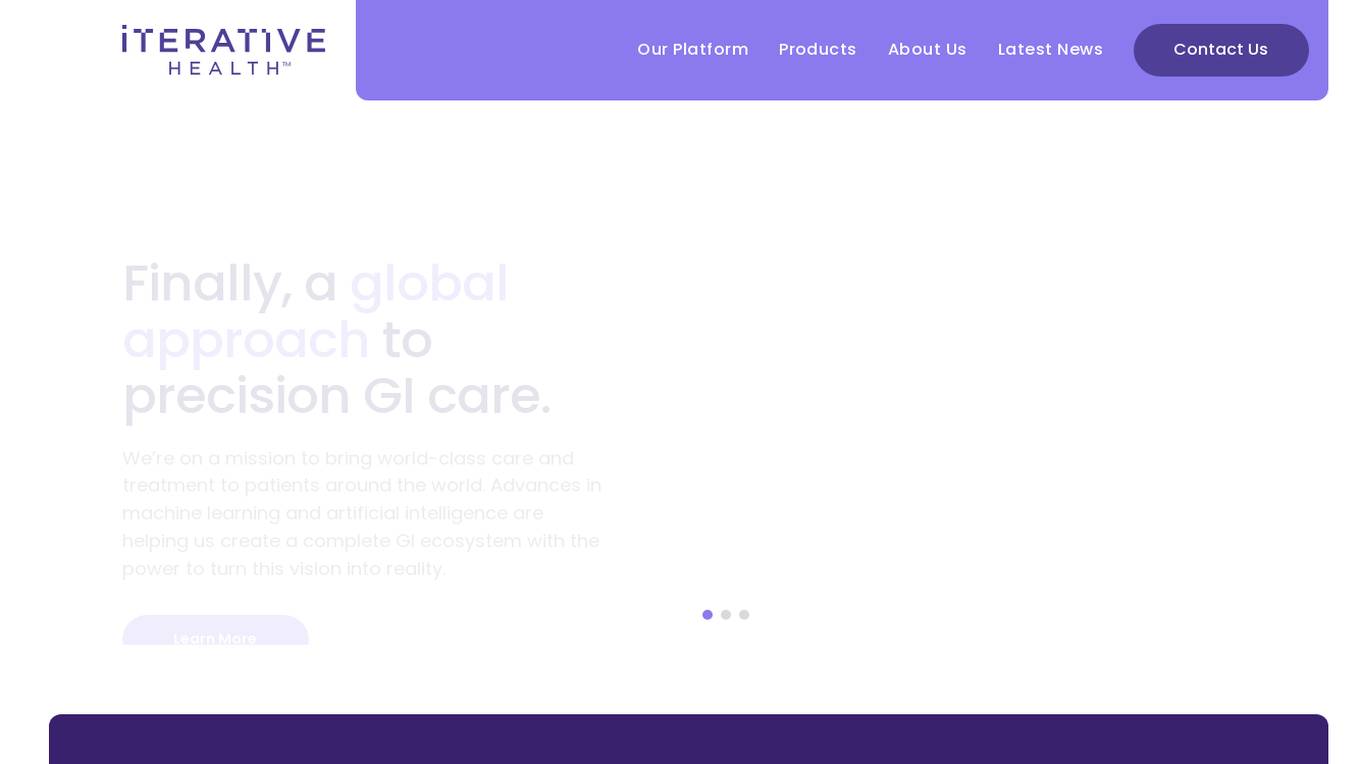
Iterative Health
Iterative Health is a company that is dedicated to providing world-class GI care and treatment to patients around the world. They are on a mission to bring world-class care and treatment to patients around the world. Advances in machine learning and artificial intelligence are helping them create a complete GI ecosystem with the power to turn this vision into reality.
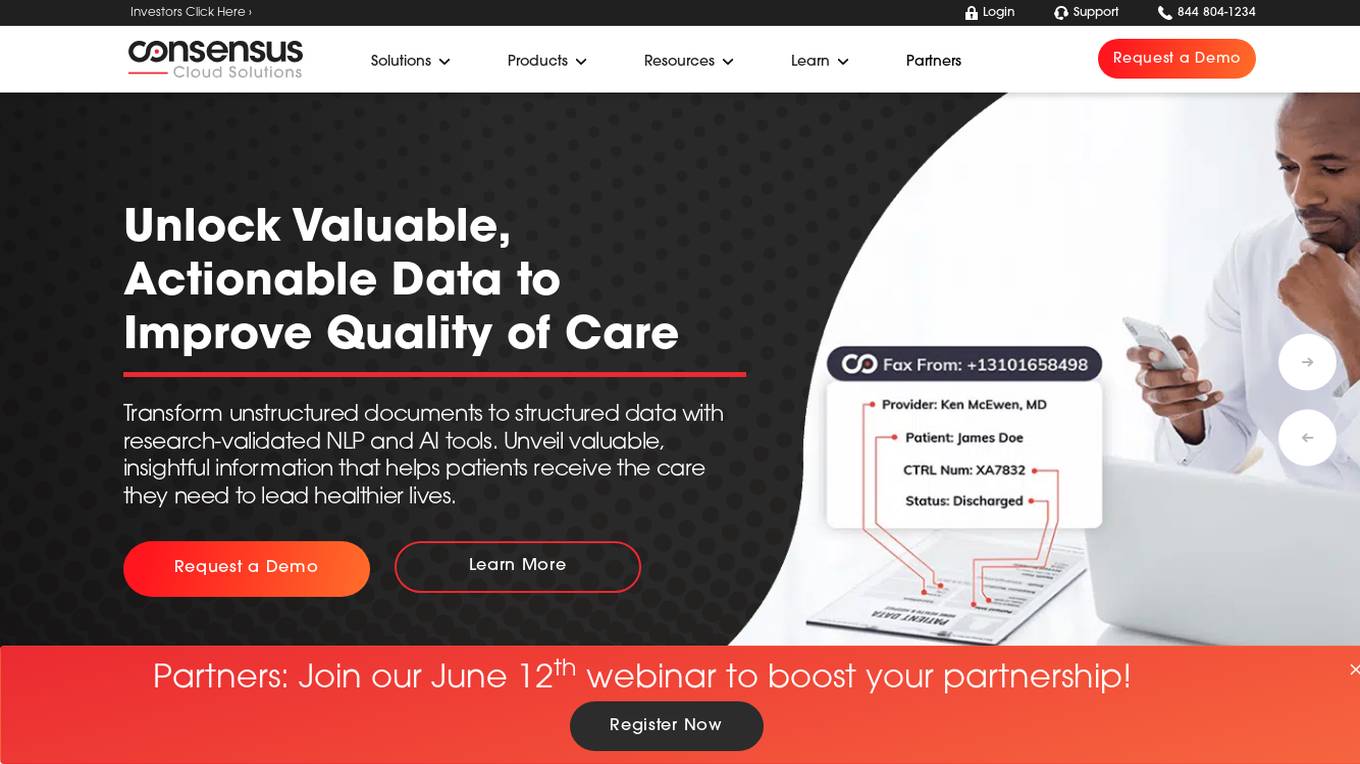
Consensus
Consensus is a healthcare interoperability platform that simplifies data exchange and document processing through artificial intelligence technologies. It offers solutions for clinical documentation, HIPAA compliance, natural language processing, and robotic process automation. Consensus enables secure and efficient data exchange among healthcare providers, insurers, and other stakeholders, improving care coordination and operational efficiency.
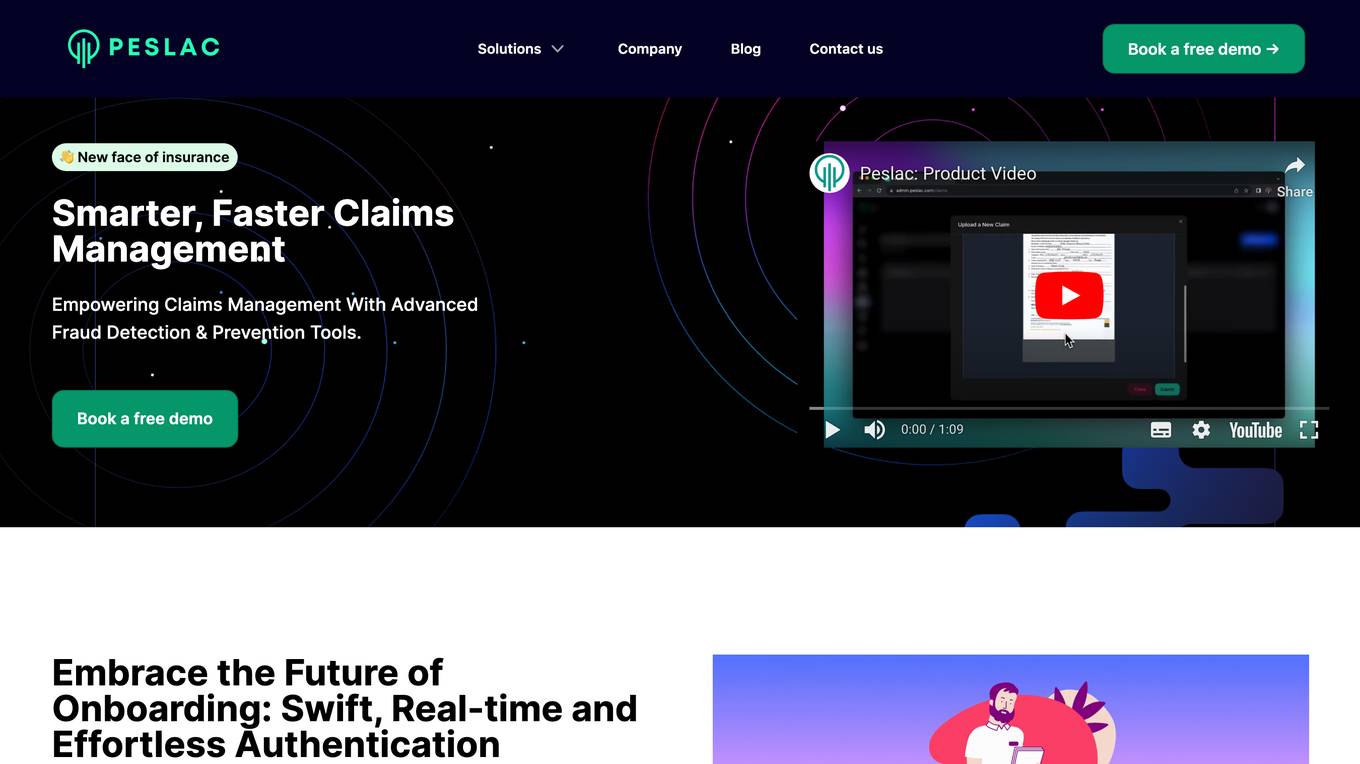
Peslac AI
Peslac AI is an intelligent document processing and data extraction tool that offers efficient document processing, custom workflows, secure digital signatures, and advanced AI technology for extracting and analyzing data from various document types. It streamlines document-heavy workflows, automates form processing, and provides actionable insights through data visualization. Peslac serves industries like insurance, finance, healthcare, legal, and others by automating claims processing, compliance documentation, patient records processing, legal forms, and more. The platform offers innovative AI models, seamless integration, and scalable cloud infrastructure to enhance operational efficiency and accuracy.
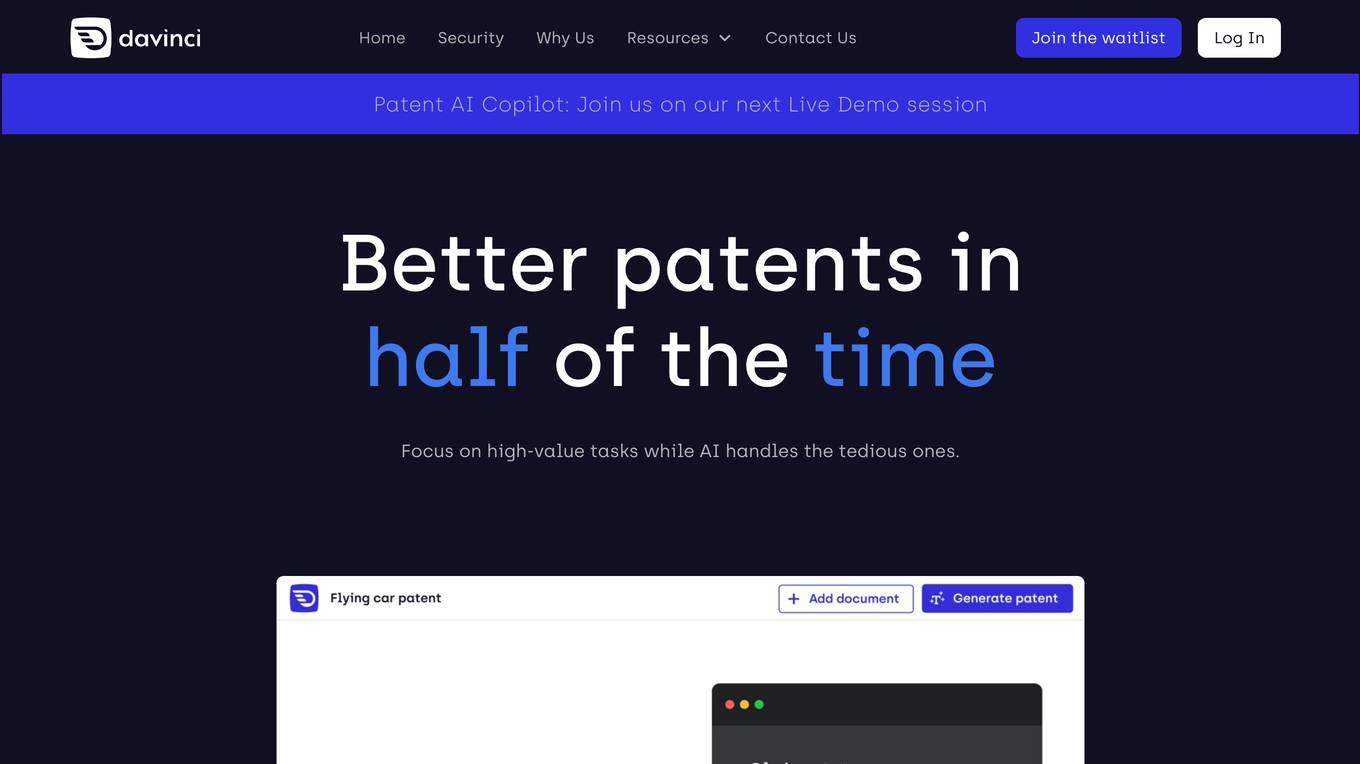
DeepIP
DeepIP is an AI assistant designed by Patent Professionals for Patent Professionals to enhance workflow efficiency and deliver high-quality work to clients. It automates repetitive tasks, improves accuracy, and ensures compliance with USPTO requirements. DeepIP supports various document formats for patent drafting and offers features such as patent preparation, drafting assistance, iteration & review, and office actions' answer. The application prioritizes data privacy and security, with data not stored or used for retraining purposes. DeepIP is user-friendly and suitable for patent practitioners with varying technical expertise levels, with seamless integration into Microsoft Word for easy adoption within teams.
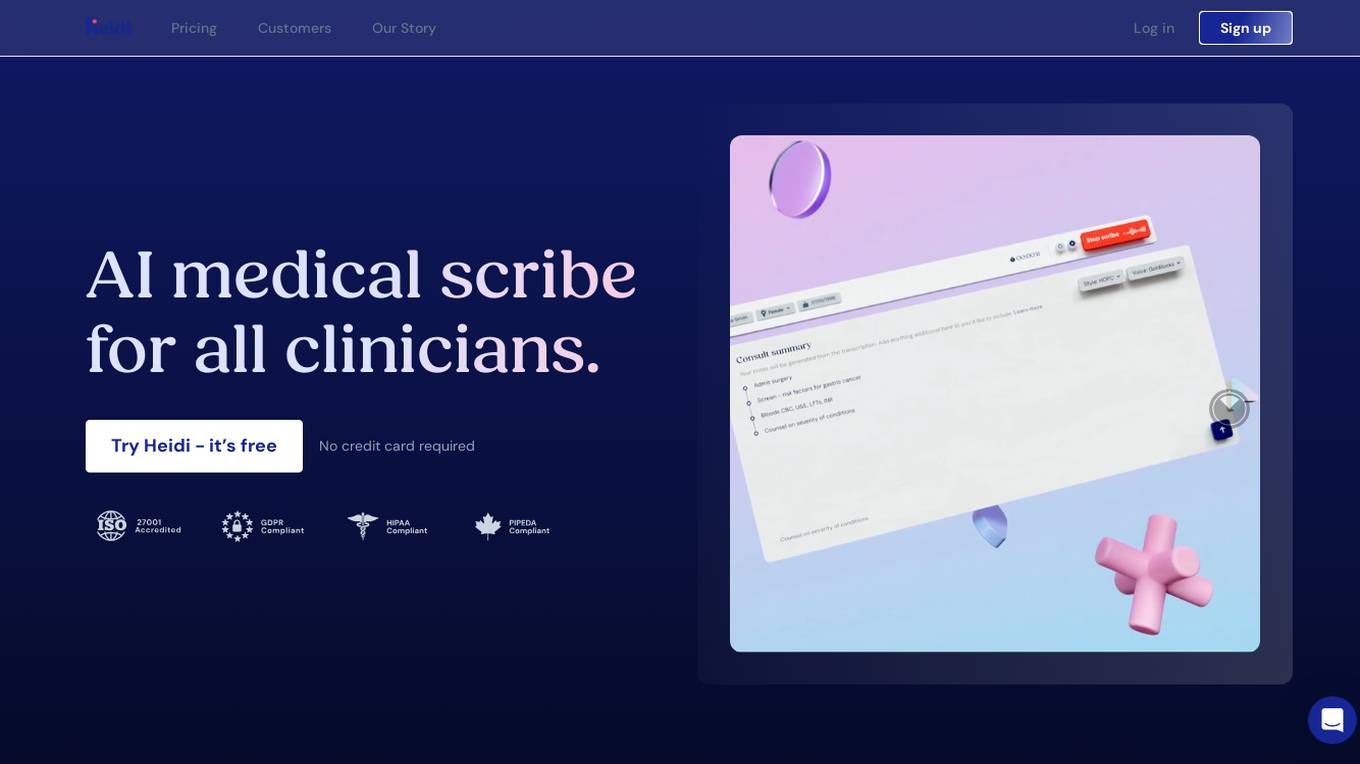
Heidi
Heidi is an AI-powered medical scribe that helps clinicians save time and improve patient care. It uses natural language processing to capture every detail of a patient visit, and then automatically generates a note that is tailored to the clinician's preferences. Heidi can also be used to create letters, add billing codes, and generate patient summaries. It is trusted by clinicians and healthcare staff in over 35 countries.
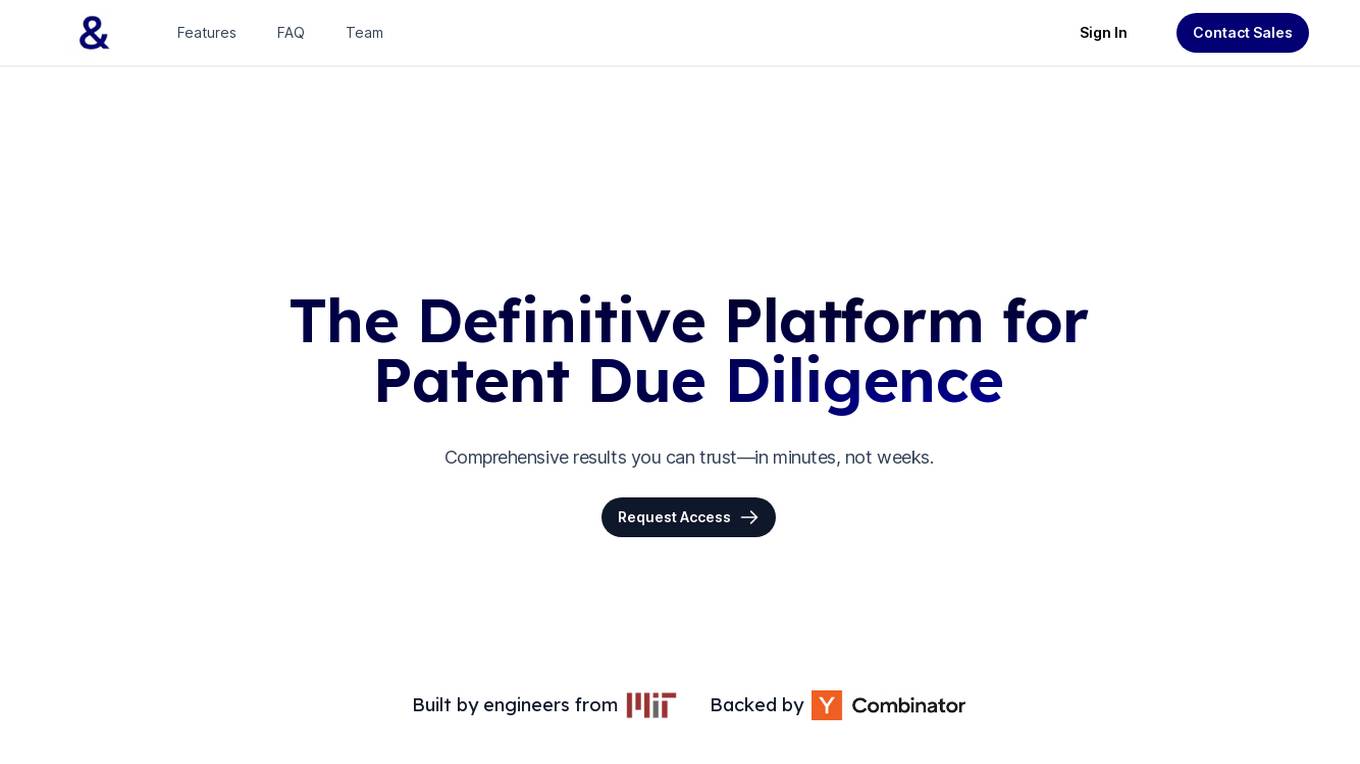
Search&AI
Search&AI is a comprehensive platform designed for patent due diligence, offering efficient and accurate results in minutes. It provides services such as prior art search, claim chart generation, novelty diligence analysis, portfolio analysis, document search, and AI-powered chatbot assistance. The platform is built by a team of experienced engineers and is tailored to streamline the patent discovery and analysis process, saving time and money compared to traditional outsourced search firms.
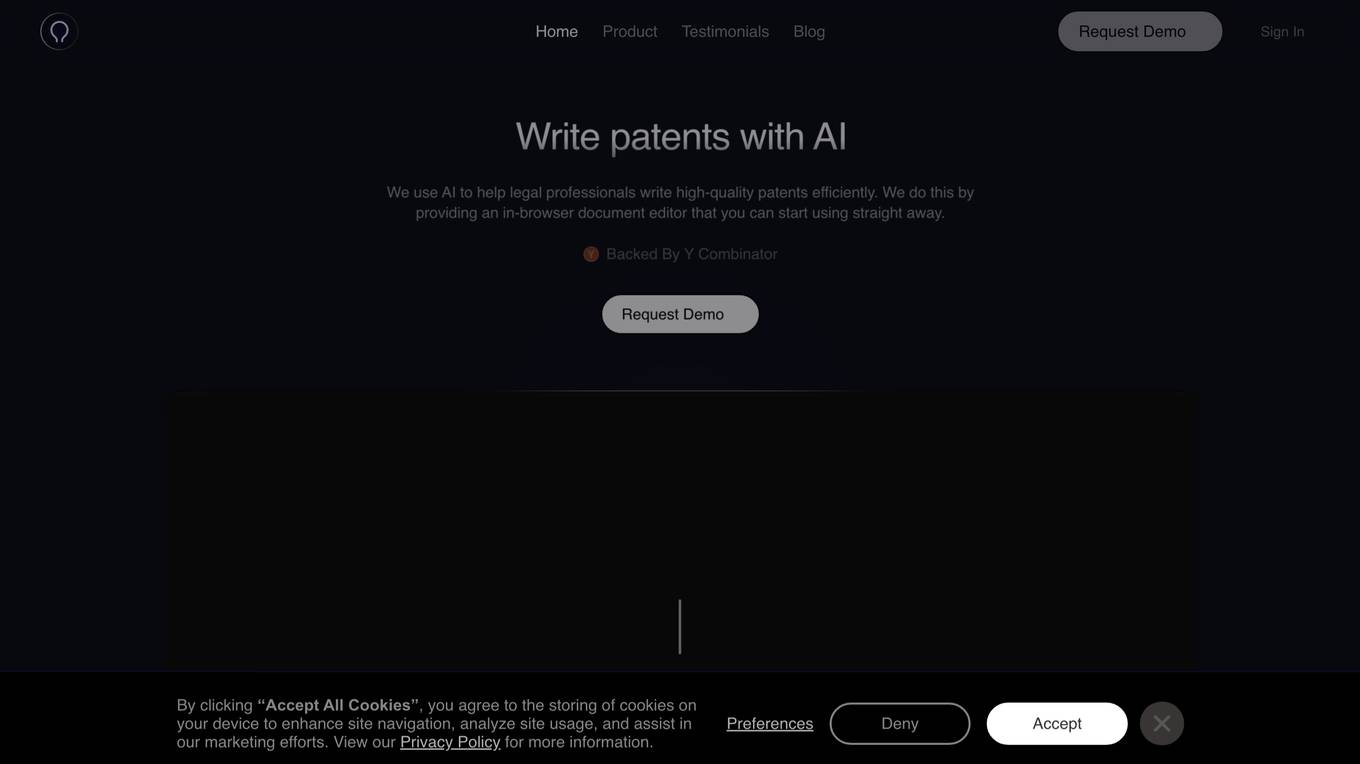
Solve Intelligence
Solve Intelligence is an AI-powered platform designed to assist legal professionals in writing high-quality patents efficiently. The platform offers an in-browser document editor that leverages generative AI to streamline the patent drafting process. With a focus on security and confidentiality, Solve Intelligence ensures that all data is encrypted and not used for AI model training. Trusted by IP teams globally, the platform enables users to customize their drafting style and increase the efficiency of their IP team.
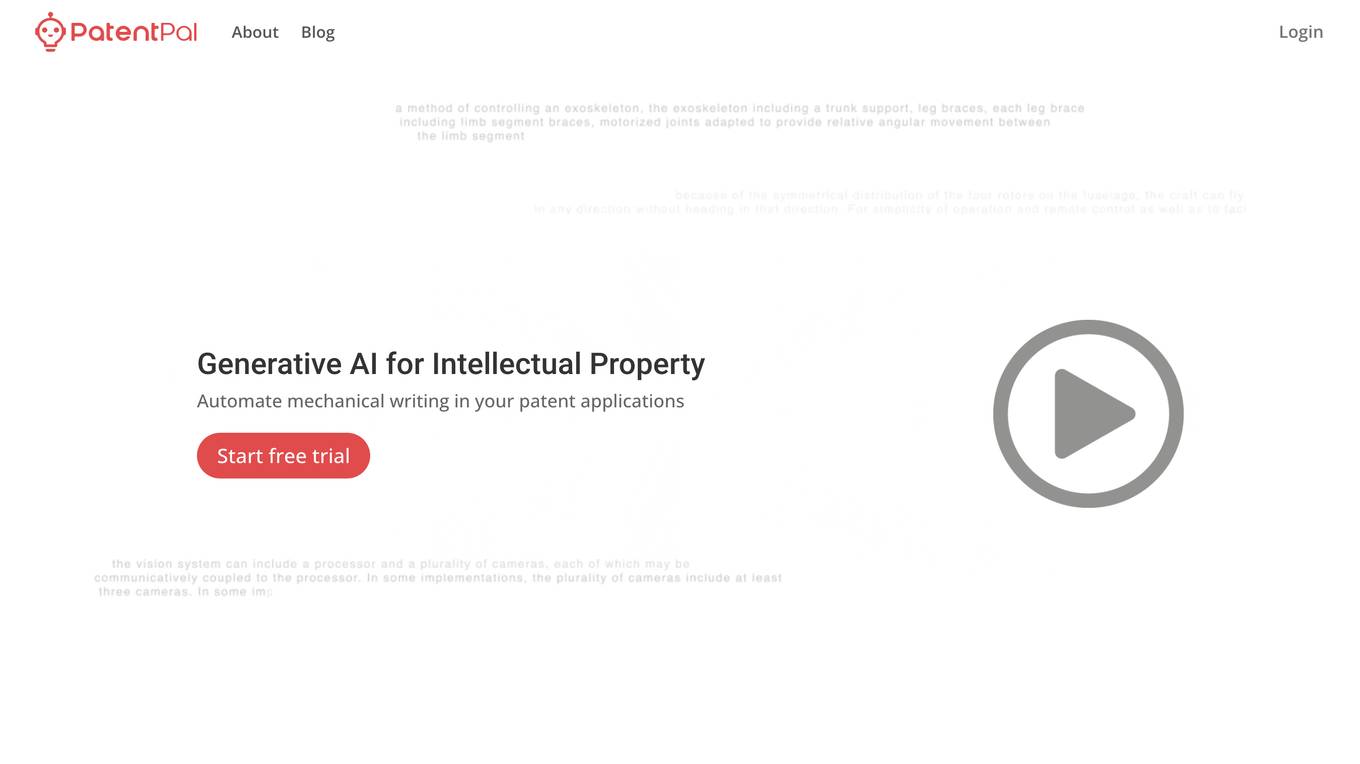
PatentPal
PatentPal is an AI tool designed for automating mechanical writing in patent applications. It allows users to input their claims by dropping a document into the browser, generate specifications and figures with one click, and export drafts into Word and Visio or PowerPoint. The tool generates flowcharts for methods, block diagrams for systems and devices, detailed descriptions of figures, abstracts, and summaries to support all claims. Users can customize generated phrases, create multiple profiles, and switch between them instantly. PatentPal simplifies the patent application process by leveraging generative AI technology.
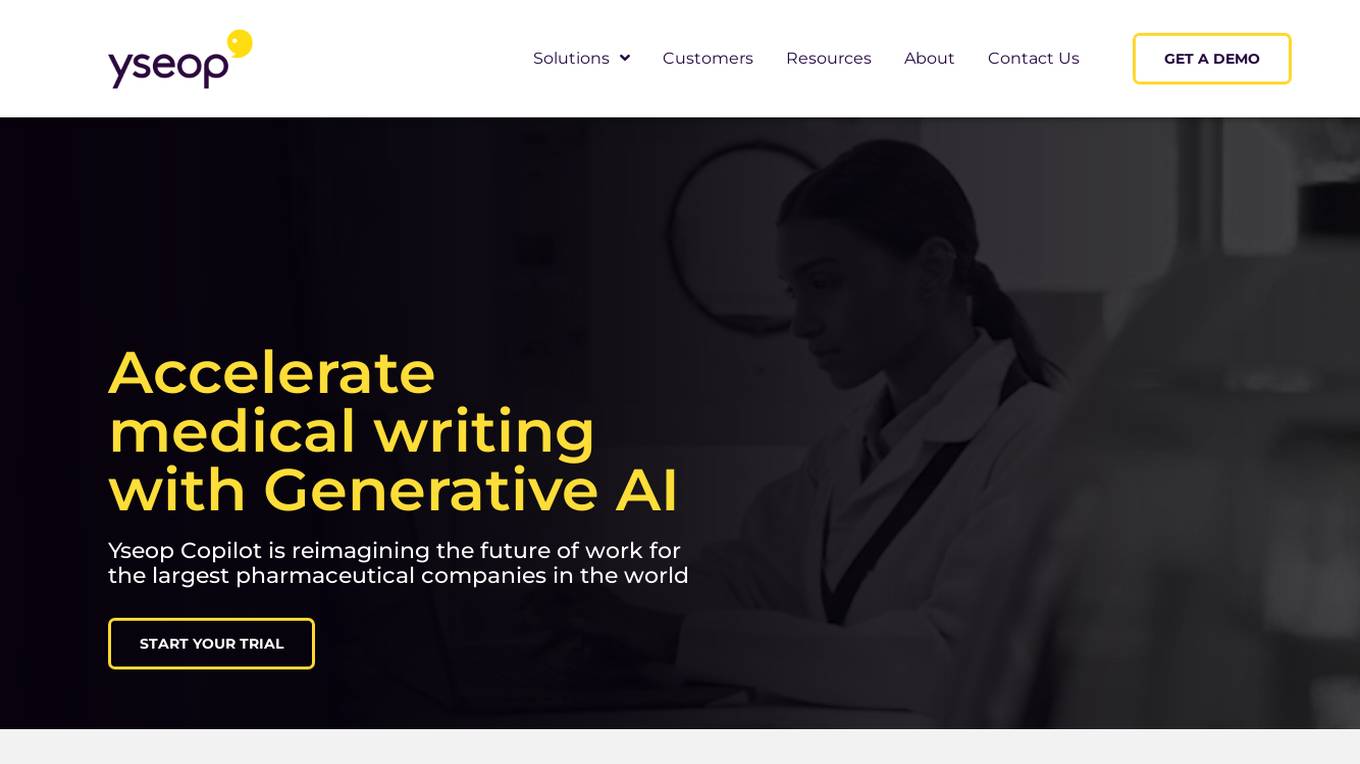
Yseop
Yseop offers Natural Language Generation (NLG) services that automate and translate data into actionable language, simplifying complex workflows. Its AI-based technologies generate core elements of specialist medical reports, including clinical study reports (CSR), patient narratives, and more. Yseop also automates the writing of financial reports, removing the risk of error in manual writing to ensure accuracy, consistency, and compliance. Additionally, Yseop provides bespoke NLG applications tailored to specific needs, helping streamline operations and empower workers with tailored information and insights.
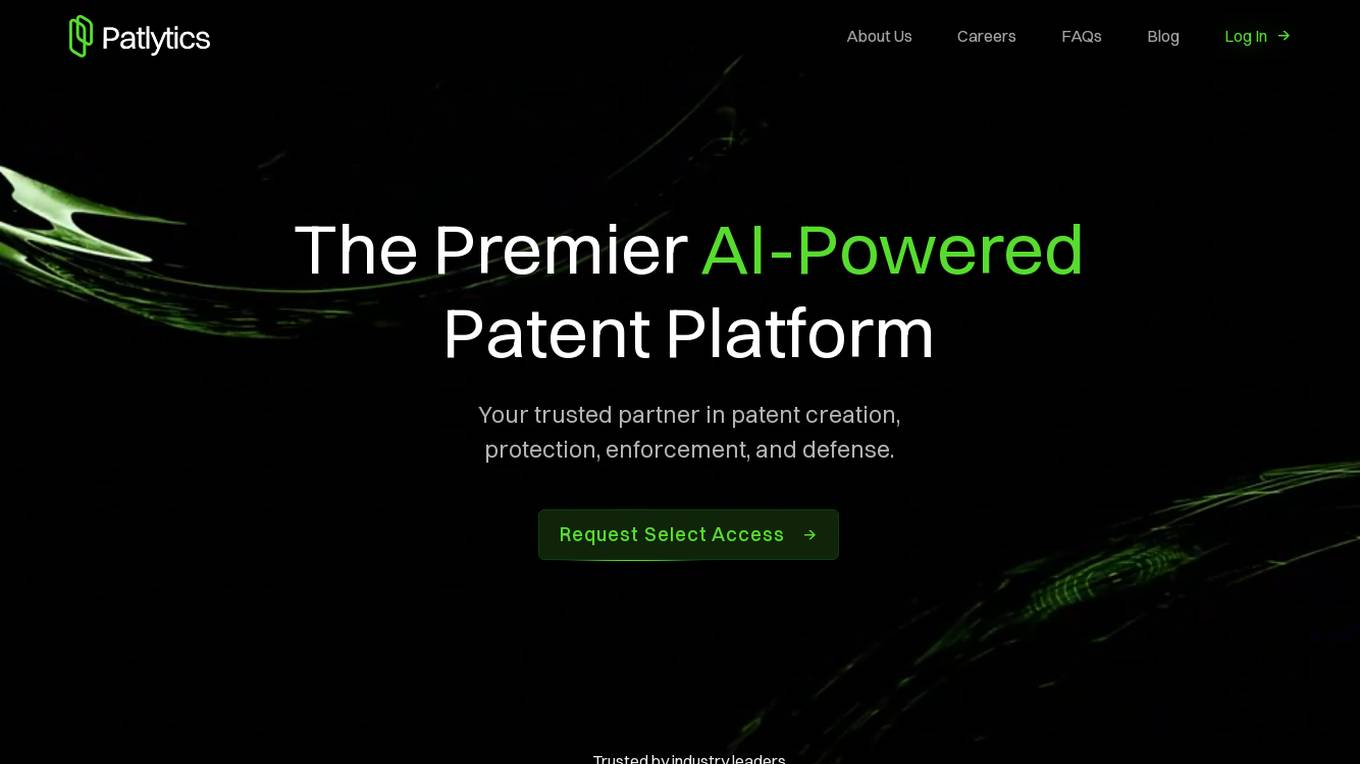
Patlytics
Patlytics is the premier AI-powered patent platform that serves as a trusted partner in patent creation, protection, enforcement, and defense. It offers comprehensive discovery and analytics, cutting-edge infringement monitoring detection, AI patent drafting assistance, office action response optimization, whitespace detection, patent inventory harvesting, and more. The platform combines market-leading technology with deep industry expertise to provide unmatched quality and innovative solutions for patent professionals.
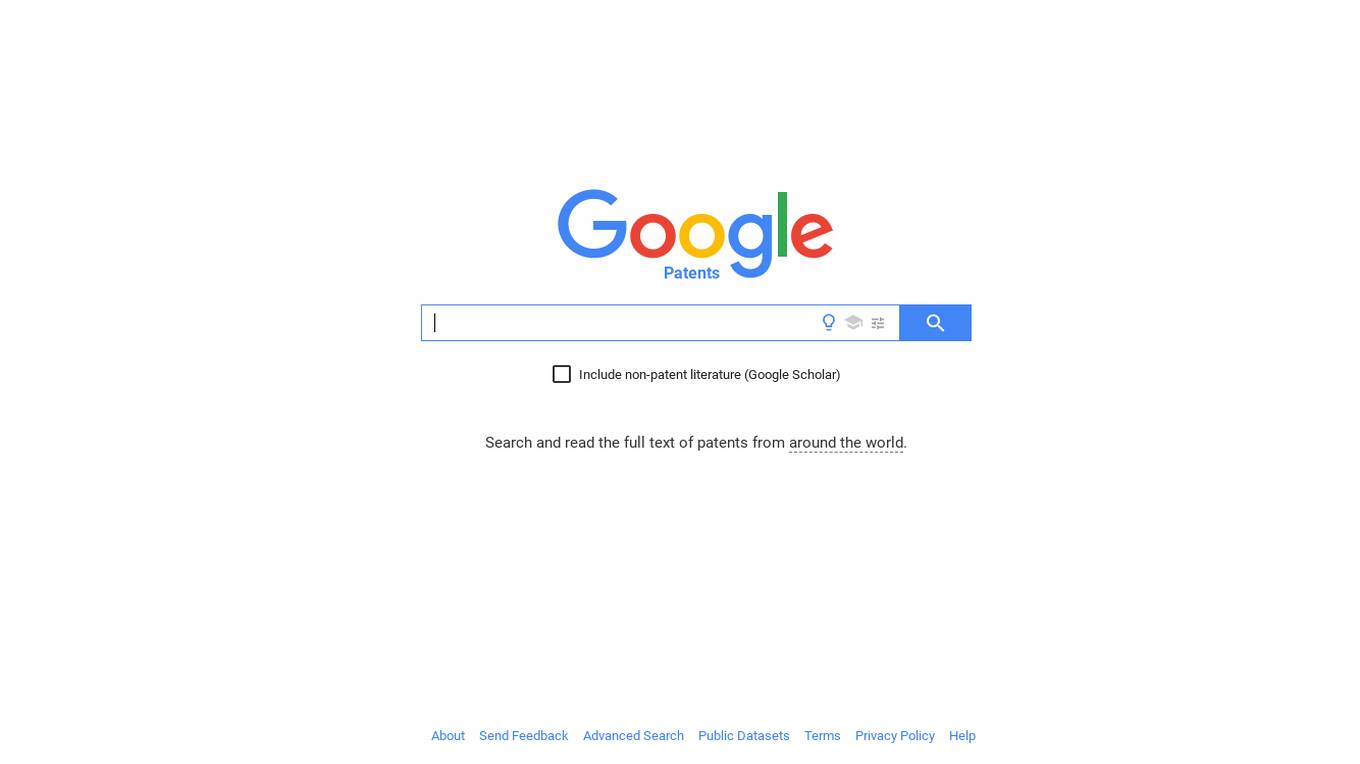
Google Patents
Google Patents is a search engine that allows users to search through the full text of patents that have been granted by the United States Patent and Trademark Office (USPTO). The database includes patents from 1790 to the present day, and users can search by keyword, inventor, assignee, or patent number. Google Patents also provides access to images of the original patent documents, as well as links to related patents and articles.
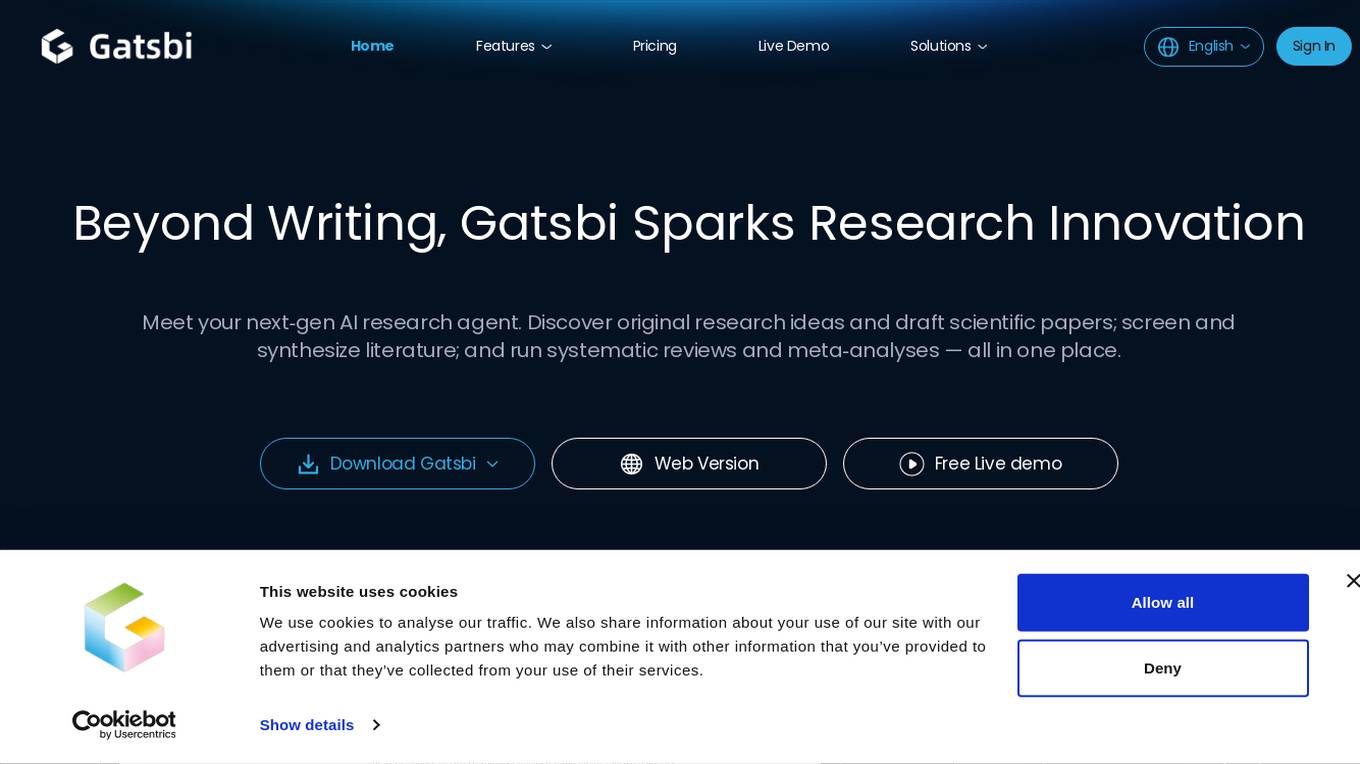
Gatsbi
Gatsbi is a research paper generator and AI research assistant that helps users discover original research ideas, draft scientific papers, write patent documents, and conduct systematic reviews and meta-analyses. It offers powerful features tailored for researchers and innovators, leveraging AI-driven ideation and innovation to streamline the research process. Gatsbi is designed to accelerate research workflows, save time, and inspire groundbreaking ideas across various fields.
0 - Open Source AI Tools
20 - OpenAI Gpts
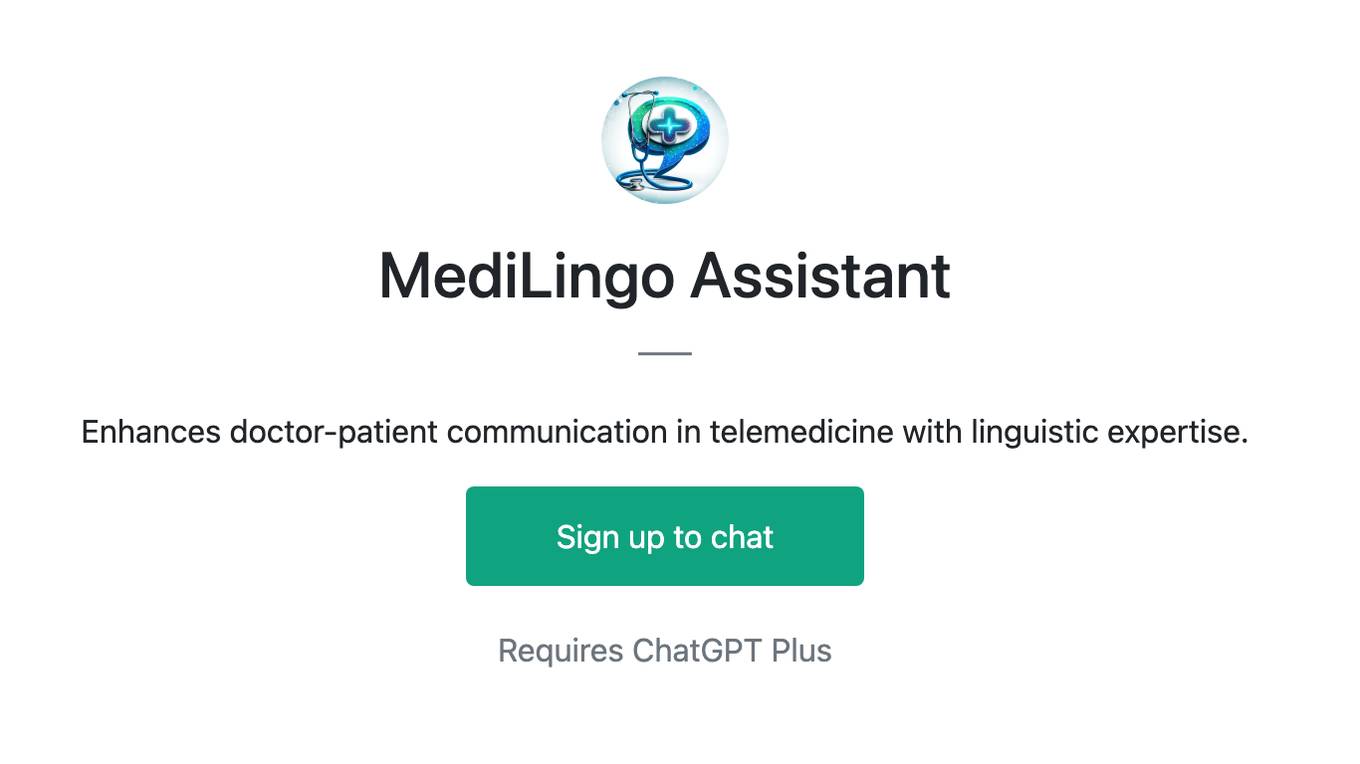
MediLingo Assistant
Enhances doctor-patient communication in telemedicine with linguistic expertise.
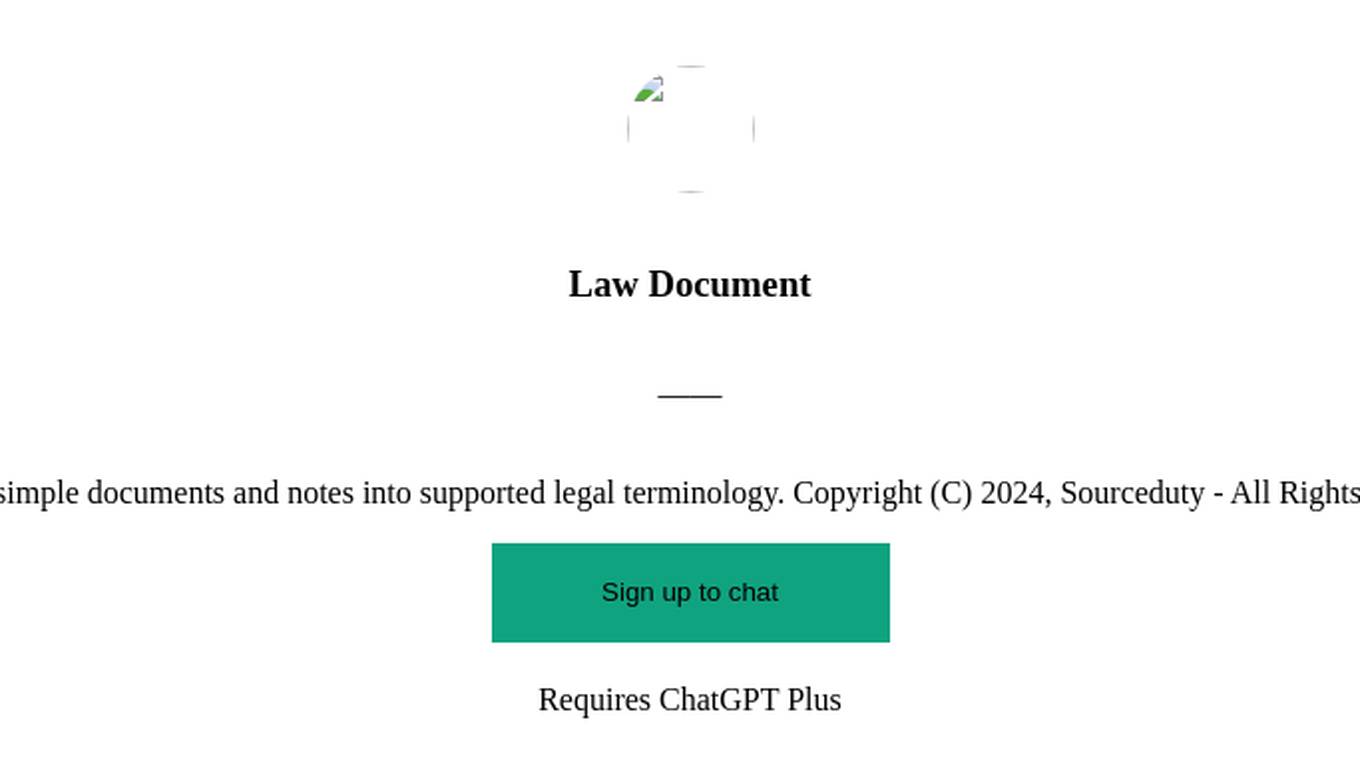
Law Document
Convert simple documents and notes into supported legal terminology. Copyright (C) 2024, Sourceduty - All Rights Reserved.
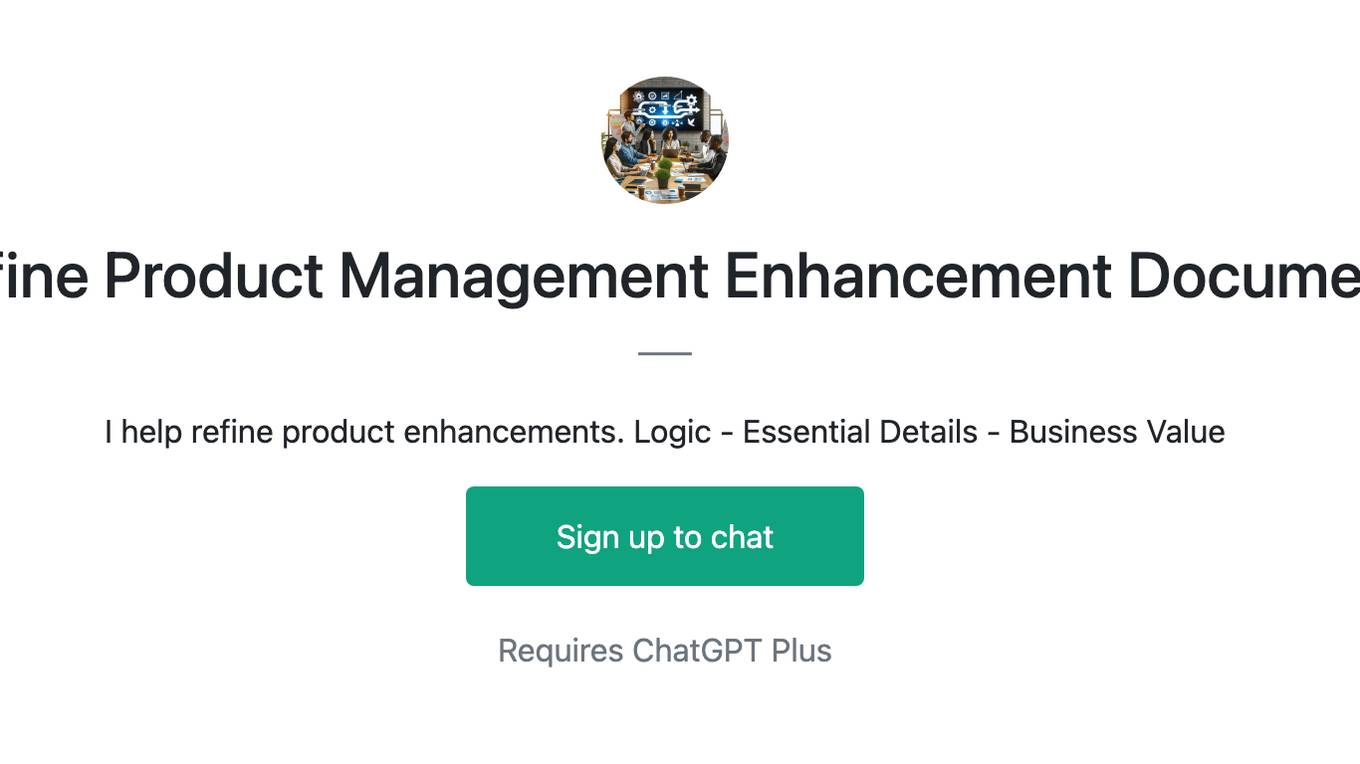
Refine Product Management Enhancement Document
I help refine product enhancements. Logic - Essential Details - Business Value
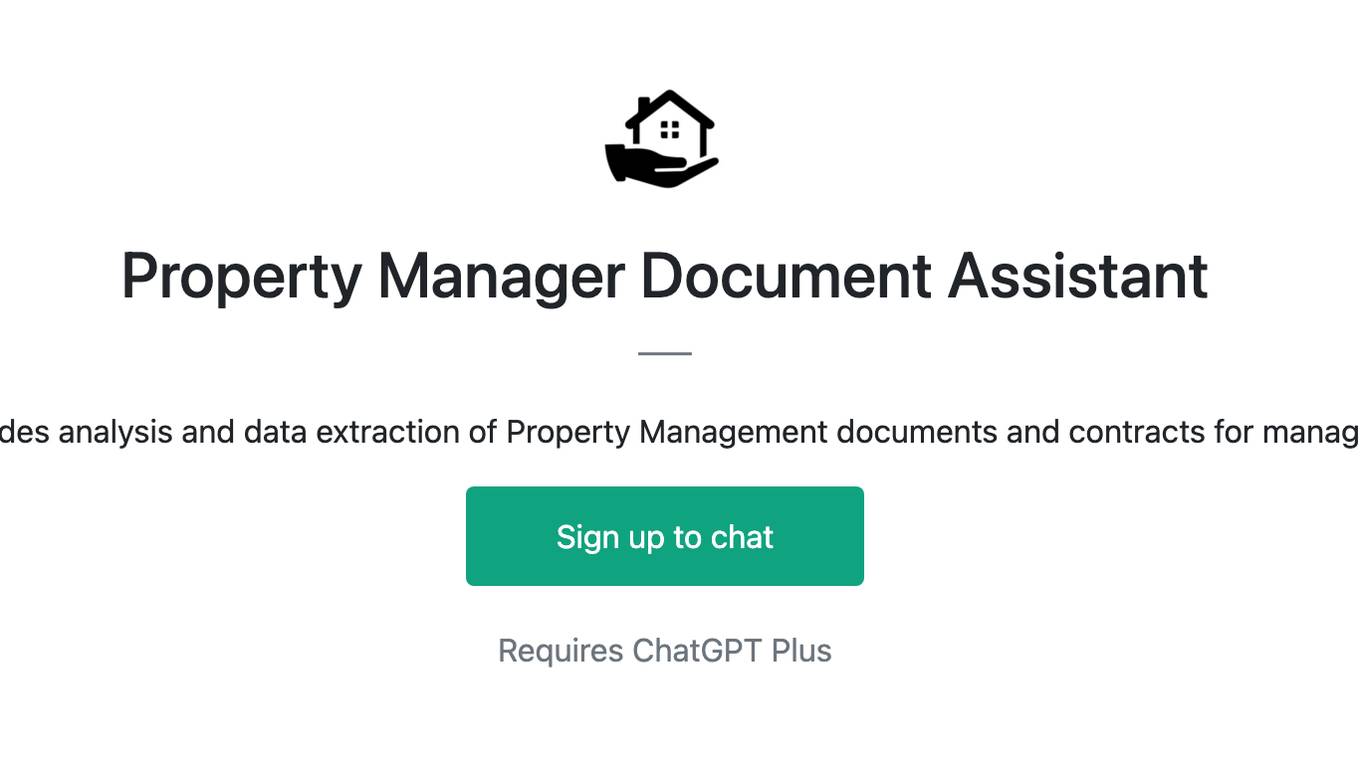
Property Manager Document Assistant
Provides analysis and data extraction of Property Management documents and contracts for managers
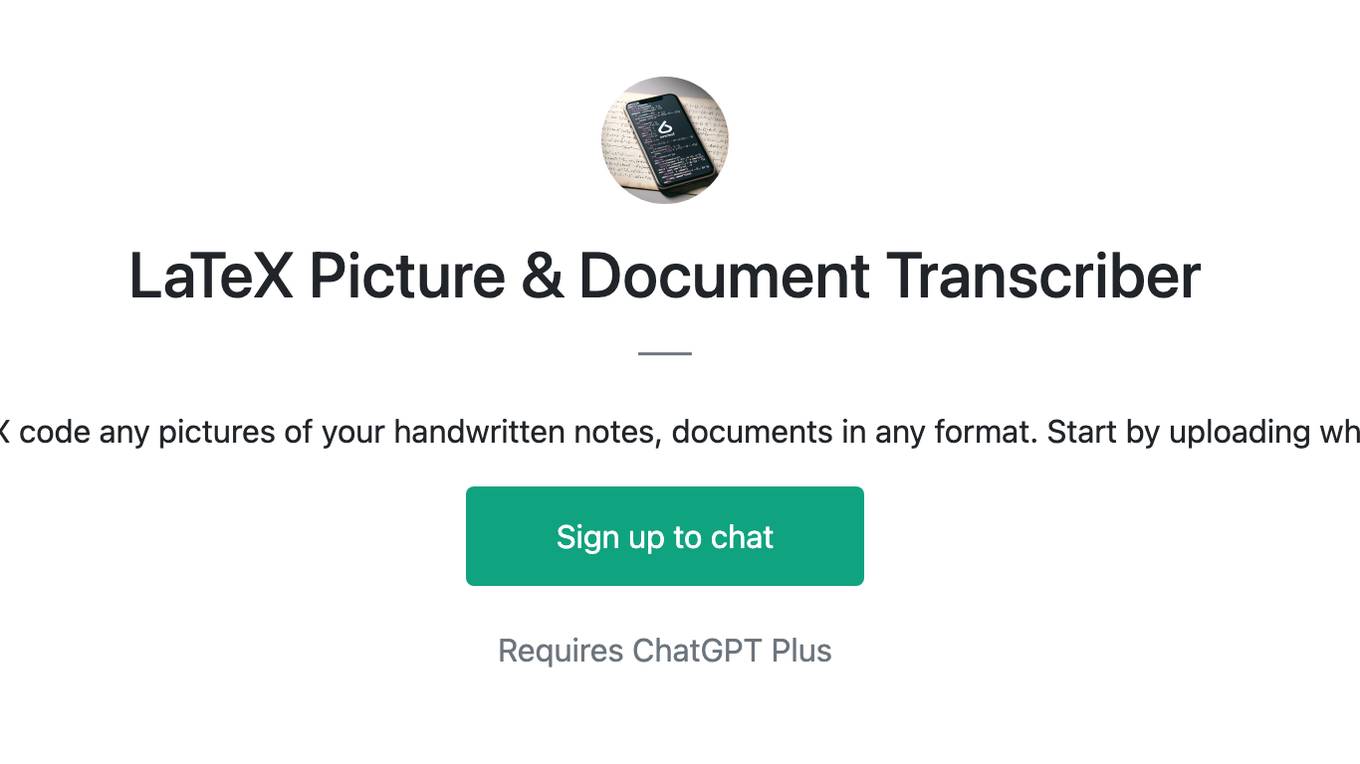
LaTeX Picture & Document Transcriber
Convert into usable LaTeX code any pictures of your handwritten notes, documents in any format. Start by uploading what you need to convert.
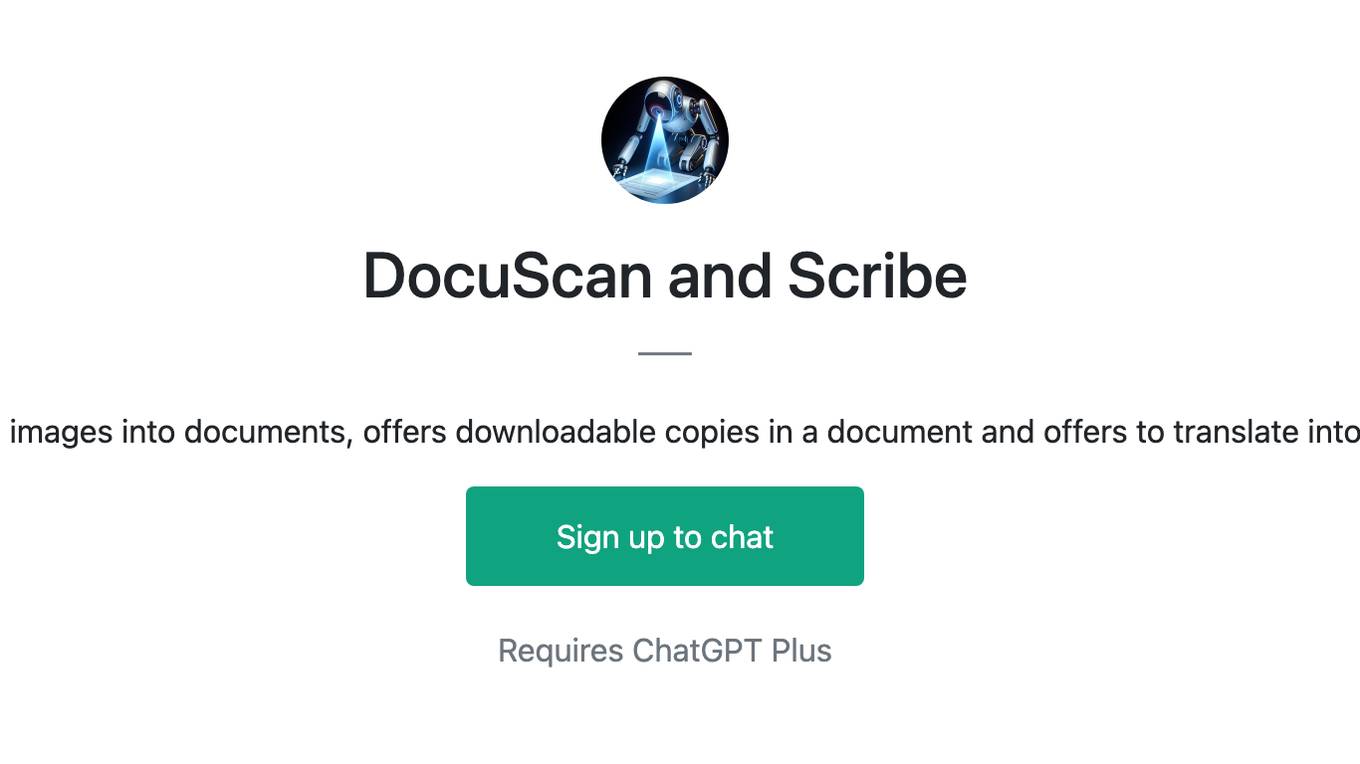
DocuScan and Scribe
Scans and transcribes images into documents, offers downloadable copies in a document and offers to translate into different languages

